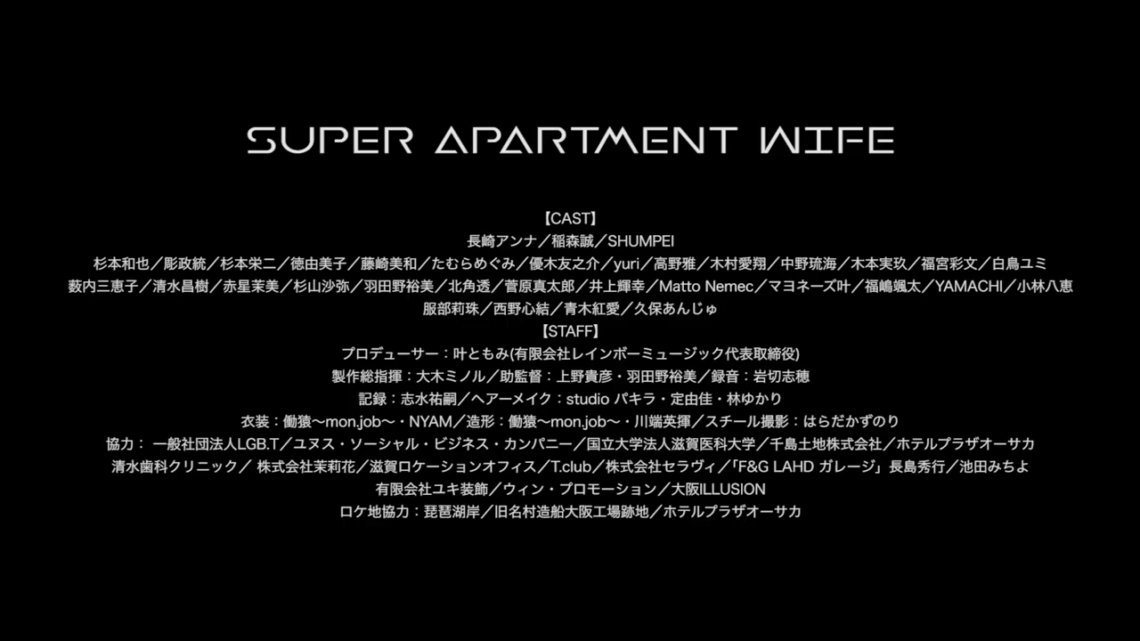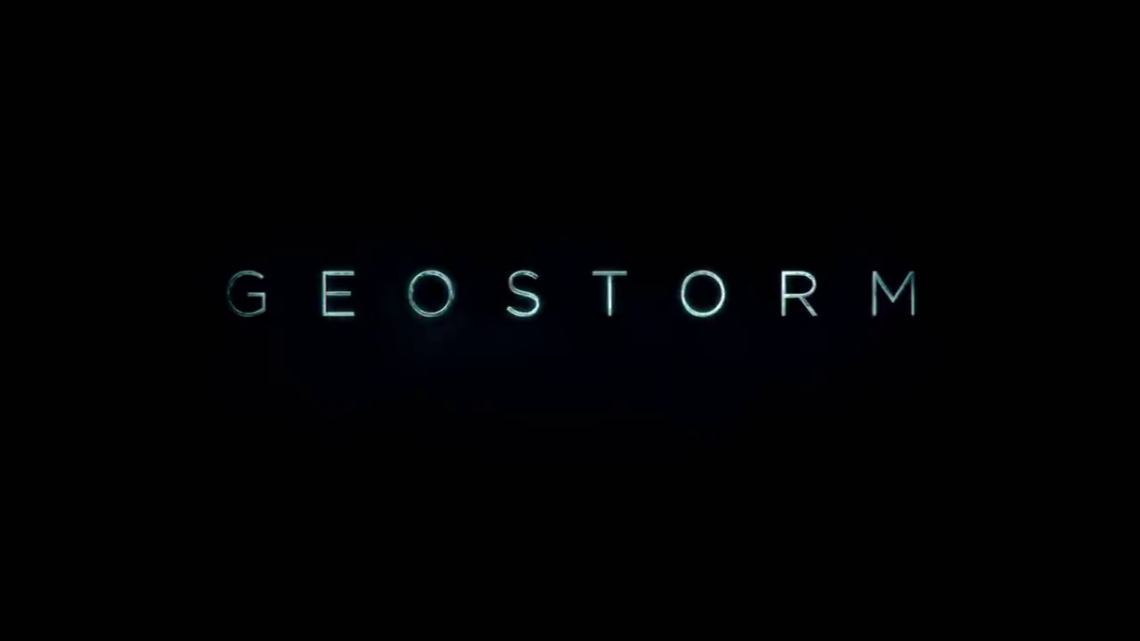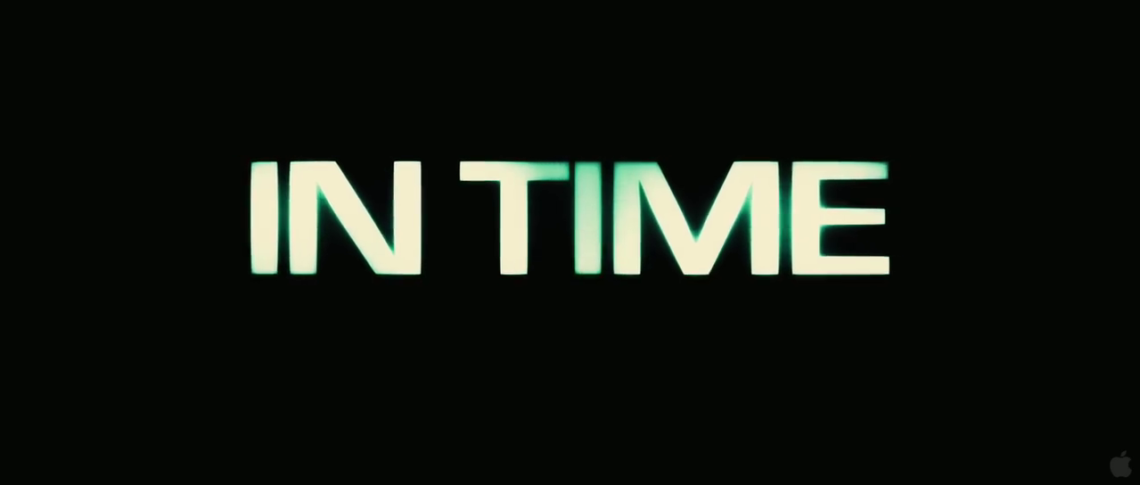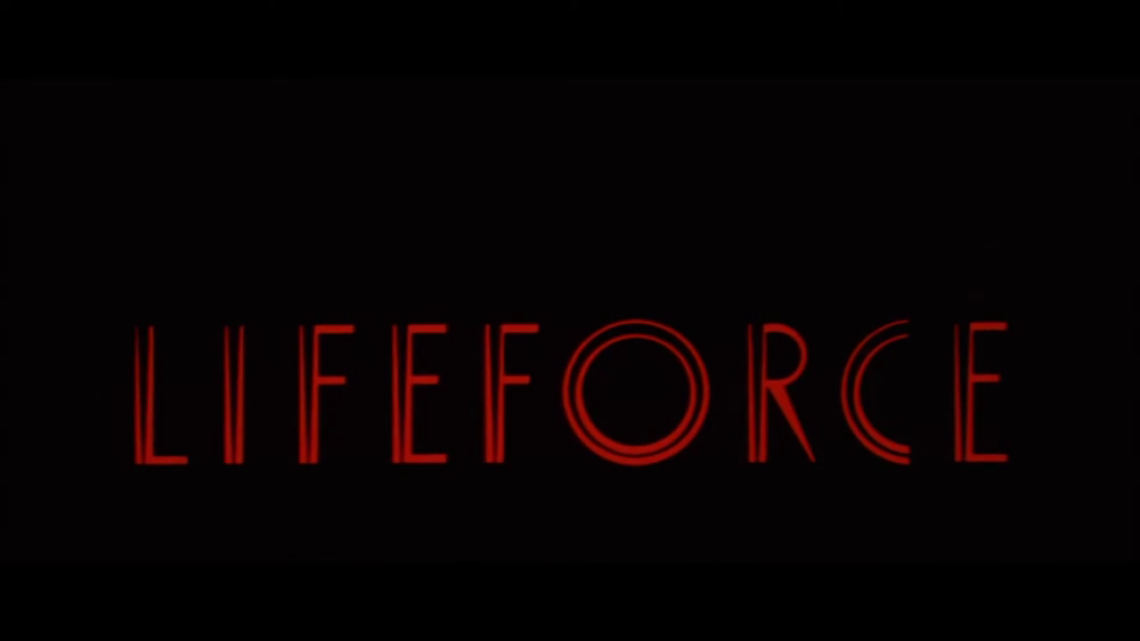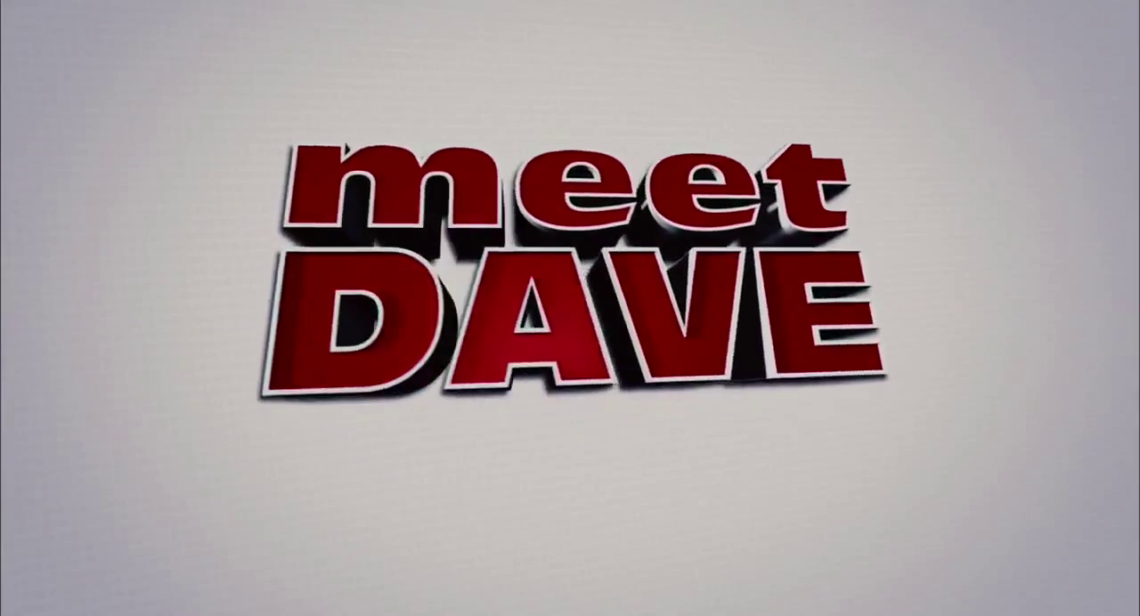Film reviews
-
#607 – Sharktopus (2023)
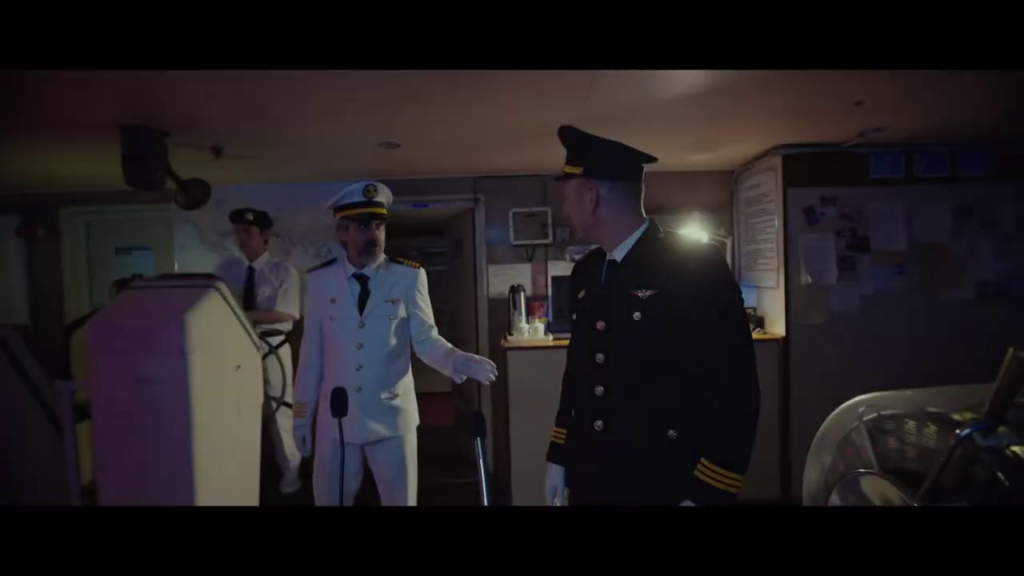
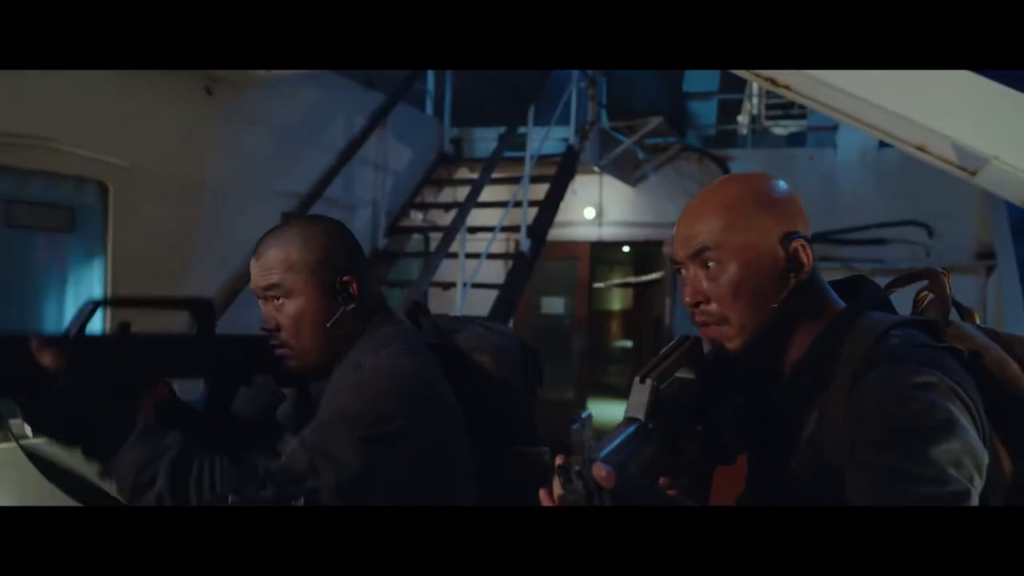
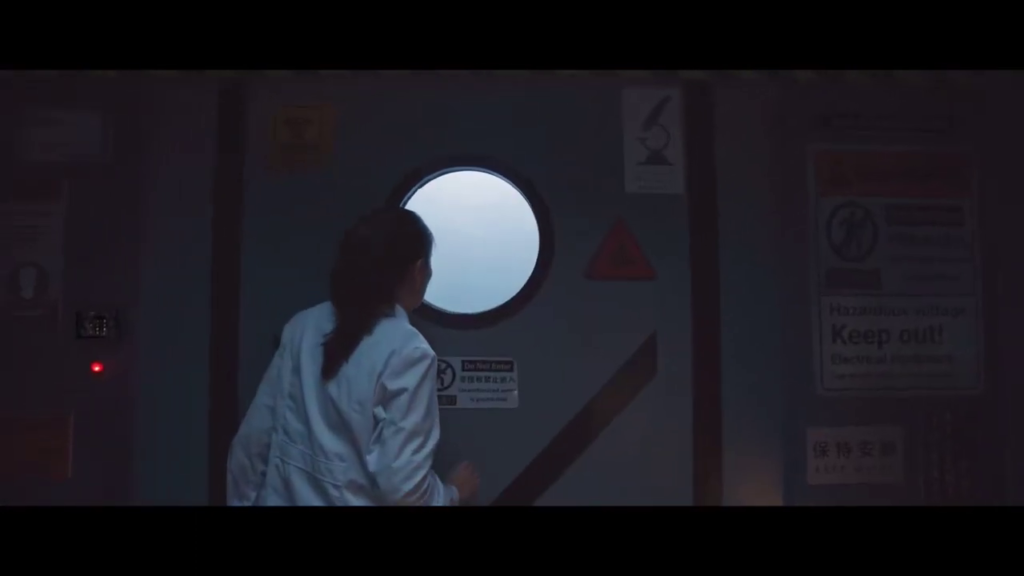
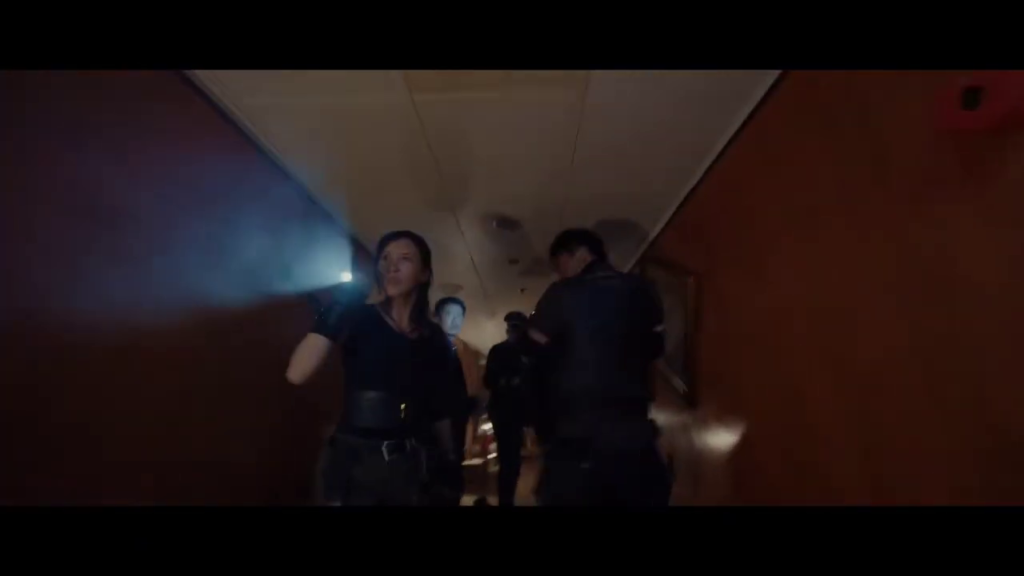
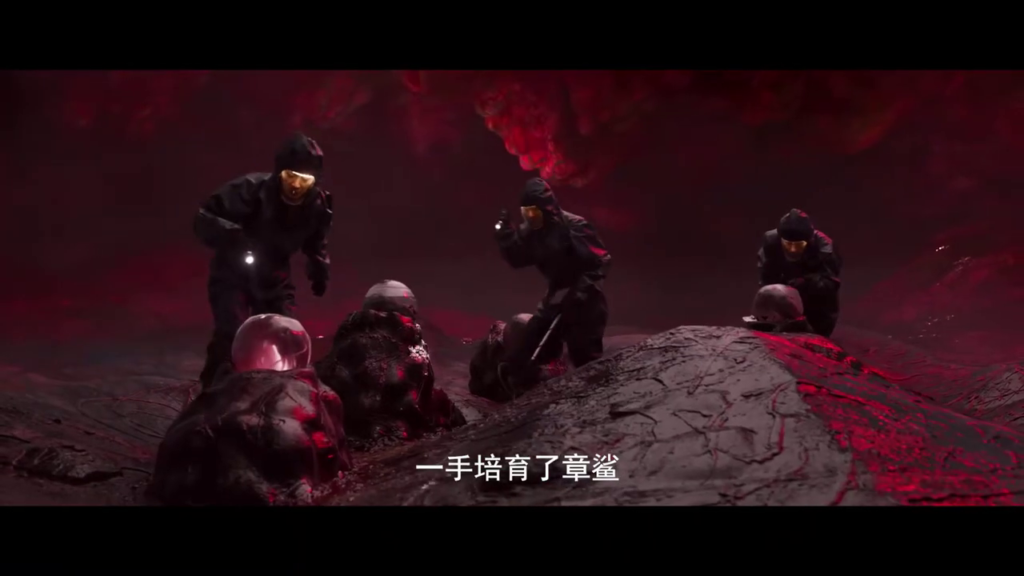
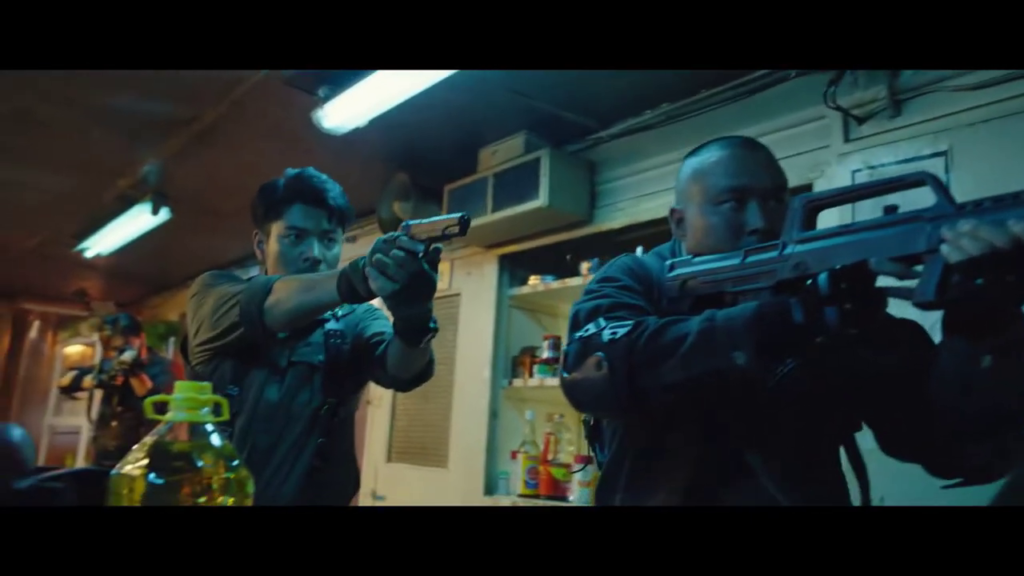
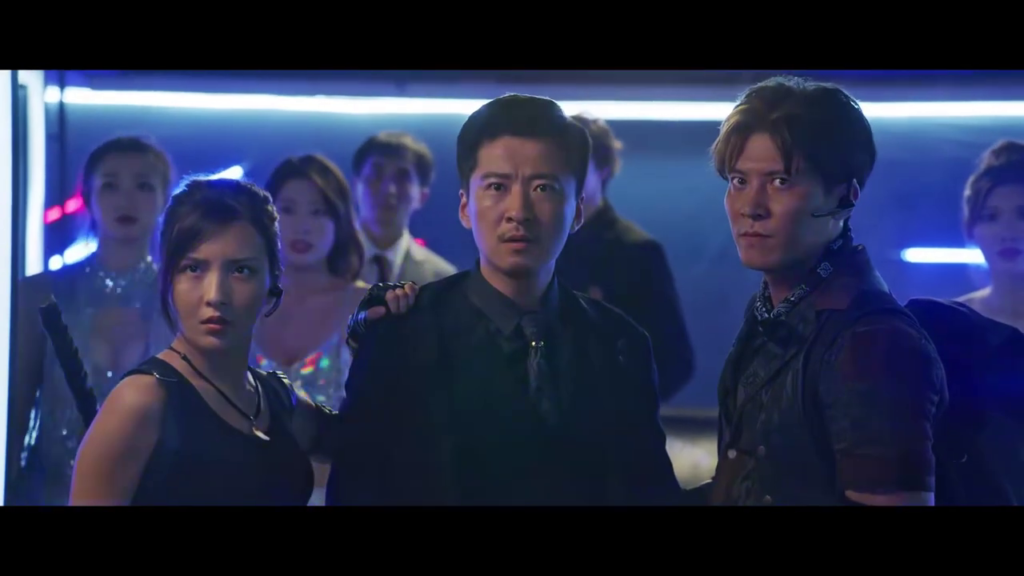
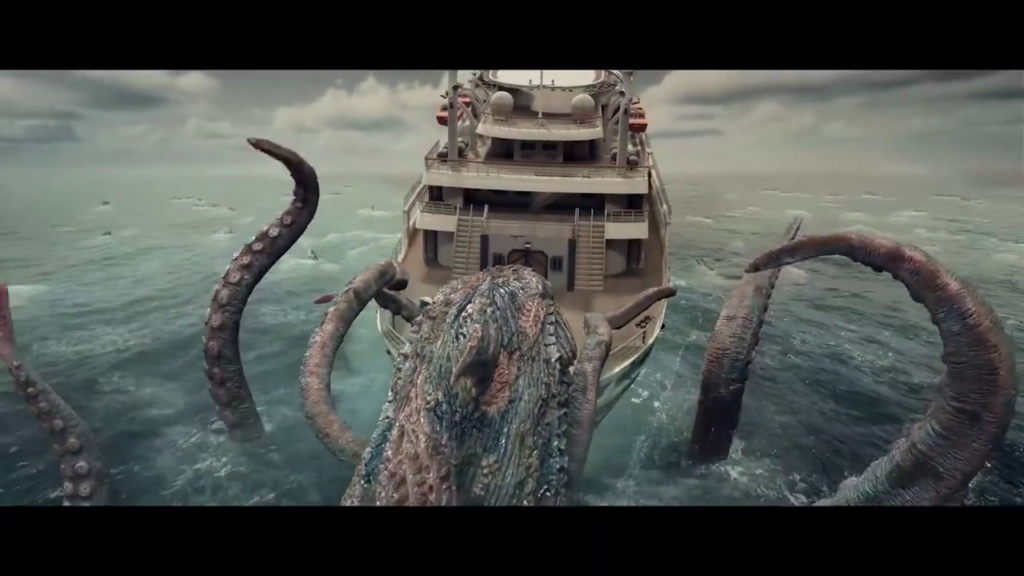


Sharktopus (2023)
Film review #607
Directors: Hu Dong-Sheng, Shixing Xu
SYNOPSIS: When a huge octopus washes up dead on the shore, Scientist Dr. Jingya Fan, who was working on the project to create it, abandons the project. The financial backer, Mr. Chen, is not impressed with this, and kidnaps her son to force her to continue her research in secret aboard his ship. When the shark-octopus (sharktopus) hybrid research subject escapes from captivity, the lives of the crew and passengers are put in danger, and must stop the sharktopus before it’s too late…
THOUGHTS/ANALYSIS: Sharktopus is a 2023 sci-fi film. technically a remake of the 2010 TV movie Sharktopus, it bears no resemblance to it other than the title, and a titular shark-octopus hybrid. At the start, a giant octopus washes up on shore (while crushing some passers by), which it turns out is a research project led by Dr. Jingya Fan and financed by the mysterious Mr. Chen. Fan leaves the project, but Mr. Chen blackmails her to return by kidnapping her son in order to get her to develop a cure for multiple sclerosis, which is what her son has as well as the new test subject: A shark-octopus hybrid, or “sharktopus” if you will. Dr. Fan is taken to a cruise ship that secretly houses a research laboratory where she can do her work, but Interpol raid the ship to arrest Mr. Chen at the same time as the Sharktopus escapes from confinement, and so everyone is searching for a way to survive and stop the monster. The film certainly has a lot more going on than the original Sharktopus film, but that’s not hard, as it barely had a story at all; just scenes of women in bikinis at the beach stitched together. This remake is essentially just a typical horror movie though, with the cast trying to avoid getting hunted down by the monster. There’s not really any gore or jump scares, so the film just focuses on the cast and their trying to survive.
The film does get quite complicated, and there’s a lot going on with the characters: you have Dr. Fan trying to save her son, then you have a team of Interpol agents raiding the ship, and one of them just so happens to be Dr. Fan’s ex-partner and the Father to her son. The whole story and all the different characters do make things quite convoluted towards the end, so we don’t get much focus on the monster as we perhaps should. Also, none of the kills are really creative or exciting either: the action is very ill-paced, and we don’t see enough of the Sharktopus to make it an interesting centrepiece for the film.
The effects in the film are a mixed bag. They are fairly detailed, including the Sharktopus itself, but the CG doesn’t blend in too well, and it looks a bit odd in motion. It definitely could have been worse, but it’s not great either. The film does offer a bit of a twist at the end, but again, since the film doesn’t really create much tension, and is all over the place, it doesn’t really feel like it has too much consequence. Overall, Sharktopus has the honour of being better than the film it is based on, but that’s a very small accomplishment given the state of the 2010 film. While the film does try and build characters and give them motivation, it’s very limited, and it doesn’t offer anything exciting in terms of being a monster film, with lacklustre horror, action and/or gore. I suppose the 2010 film at least had a self-awareness that it was silly, but this 2023 version really takes itself seriously, without the stronger plot and production to back that up.
-
#606 – Summer Wars










Summer Wars (2009)
Film review #606
Director: Mamoru Hosoda
SYNOPSIS: Kenji is persuaded by classmate Natsuki to visit her family with her; posing as her boyfriend for the approval of her grandmother, who is celebrating her ninetieth birthday. As if that wasn’t enough trouble for Kenji, he inadvertently sets off a virus in the OZ network, a digital network that governs most of daily life, causing a rampant AI to seize control of people’s accounts, and control of many systems in the world, causing him to be a suspected criminal…
THOUGHTS/ANALYSIS: Summer Wars is a 2009 anime film. Kenji, a high school student and part-time moderator for the OZ, a digital network that spans the entire globe and almost all aspects of daily life. He is persuaded by fellow student Natsuki to visit her Grandmother, and pose as Natuski’s boyfriend at a family gathering for her Grandmother’s ninetieth birthday. As all of these shenanigans are unfolding, a rogue AI has infiltrated OZ, and is slowly taking control of systems all over the world, with Kenji being a suspect in the attack as he inadvertently solved a decryption key without knowing what it was for. The film is a combination of this slice-of-life melodrama, with the more dramatic and wide-reaching effect that this rogue AI is having. The film places them both on equal footings, and balances them fairly well; interweaving the two into a considered tapestry that ties the fate of the characters to what’s happening in the film as a whole. The threats are threatening thanks to some neat designs, and the family has a messy feel to it, but feels full of life, again just like how you would expect a large family to interact when they’re all placed together.
While the film has a positive reception from a lot of people, there are definitely some blind spots which hamper enjoyment of the film for me. Firstly, the main characters, Kenji and Natsuki, are very bland, and don’t bring much unique much to the film in terms of their own personalities and quirks, and as such, they are a bit cliché. They also don’t have that much time on screen together, so it’s a bit awkward when the film tries to push them together for more emotional scenes. Another issue I had is that the characters don’t really contribute that much to the action scenes in OZ: the Ai just does it’s own thing most of the time without much interference and a few fight scenes, and I felt like this connection between the two realms could have been developed in a stronger manner. The film is, as you might expect, heavily embedded in Japanese customs and traditions, but I don’t think you need too much knowledge of them to enjoy the film, but knowing what the card game Koi-Koi is, for example, would certainly be beneficial for understanding what’s actually happening in the film’s climax, but you can get the gist of what’s happening without it.
The animation and visuals are pretty good, with the world of OZ being colourful and fluid. The “real world” contrasts this with a more simple and faded colour palette and style which works well to contrast, but perhaps that extra bit of detail would have been nice to get across the character’s feelings and actions, which as mentioned is one of the film’s weaker points. The film bears a lot of similarities to one of director Mamoru Hosoda’s previous films based in the Digimon franchise: Digimon Adventure: Our War Game very similarly had the main characters have to defeat a rogue digimon that was taking over systems through the internet, and Summer Wars does feel very similar to that. The studio which made this film also made The Girl Who Leapt Through Time previously, which was a huge hit, and similarly combined a slice-of-life drama with more fantastical elements. However, Summer Wars doesn’t have the emotional weight that TGWLTT placed on it’s characters, and fails to reproduce that magic: maybe a rogue AI on the internet (or OZ) just doesn’t seem that fantastical of a concept compared to time travel, and so the different elements of Summer Wars just don’t produce a more exciting reaction when they’re mixed. Summer Wars is not a bad film: it’s well crafted and considered, and balances it’s different elements well, but the blind spots I have mentioned with regards to the characters and such are a bit too prevalent for me, and overshadow a lot of the film’s positive points to dampen them just enough to leave a lasting impression of something flawed amidst the good that the film does.
-
#605 – Redline (2009)
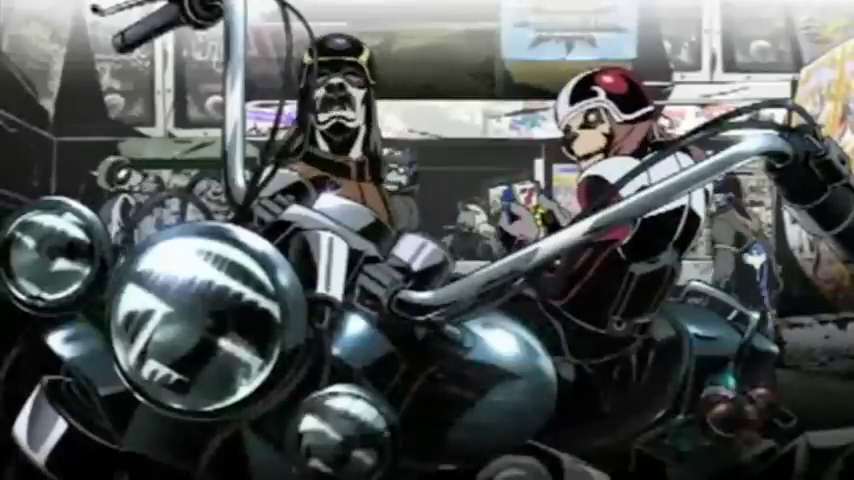
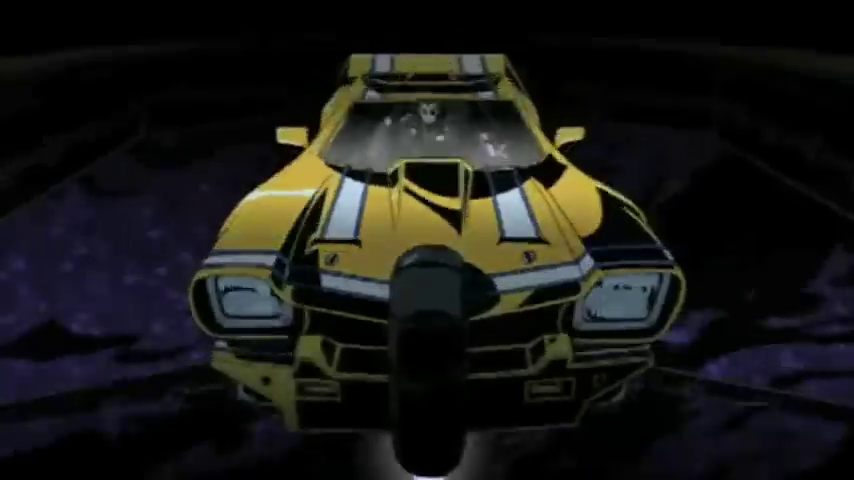

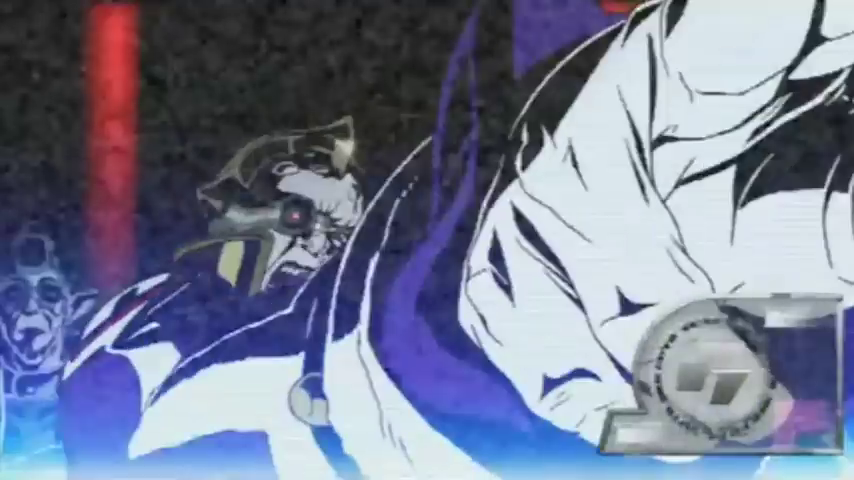
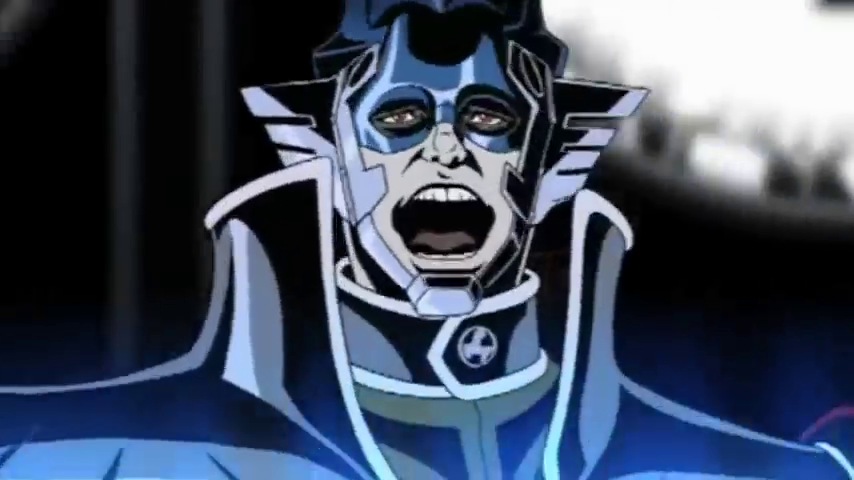
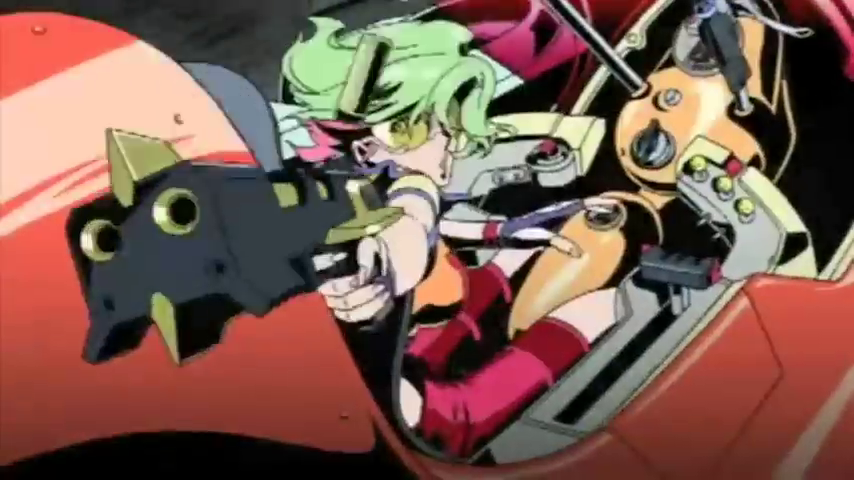
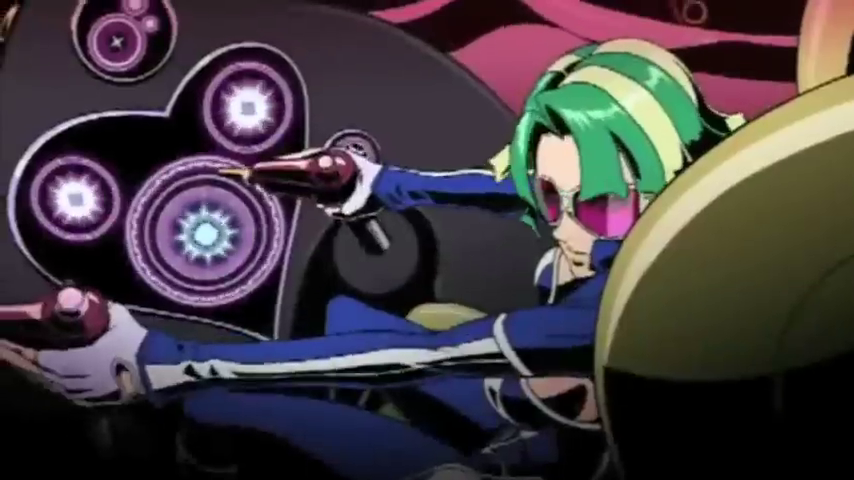
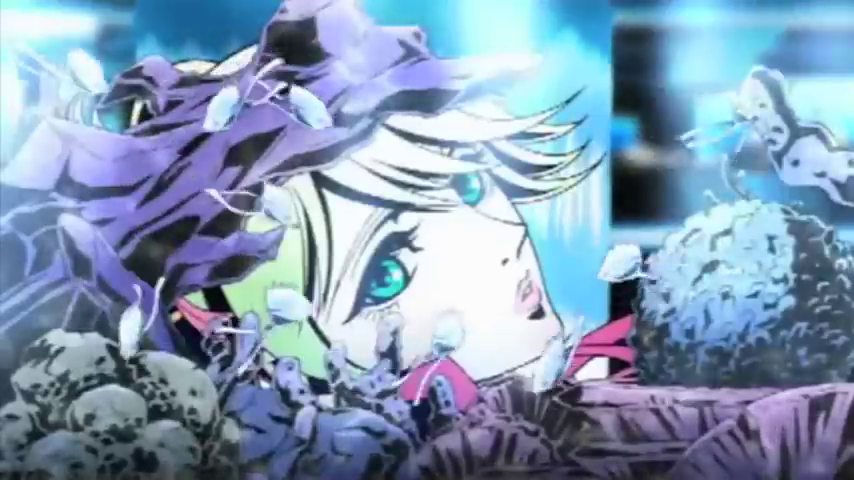
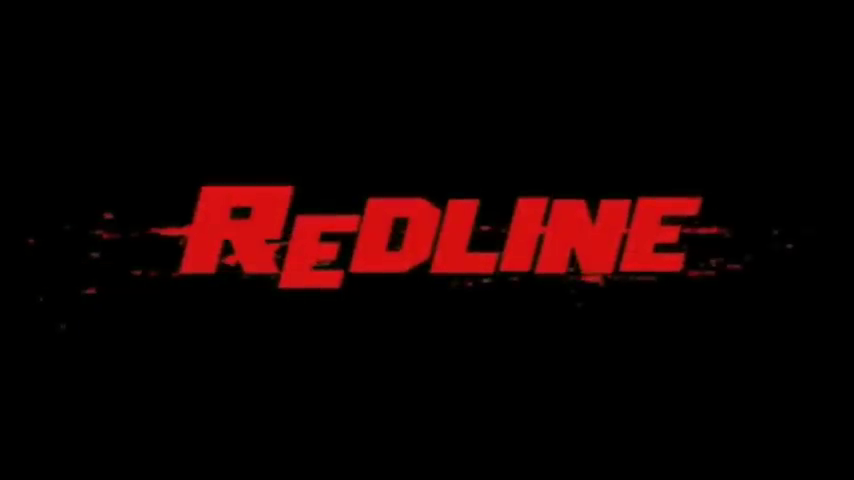
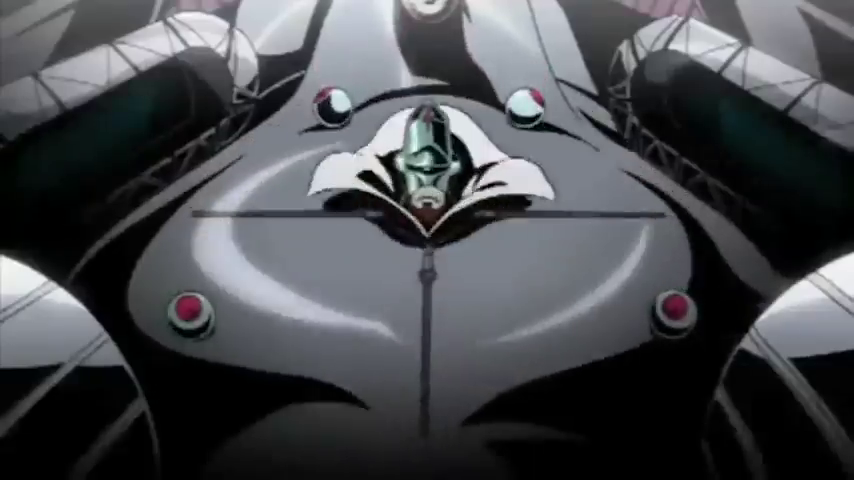
Redline (2009)
Film review #605
Director: Takeshi Koike
SYNOPSIS: In the future, the most thrilling race in the galaxy is held every five years. racer JP manages to qualify for the race after other competitors drop out, and must risk his life in the ultimate race…
THOUGHTS/ANALYSIS: Redline is a 2009 animated sci-fi film. The film is set in the future, where the ultimate race in the galaxy has competitors fight to the finish line by any means necessary; risking their lives to achieve fame and riches. One of these racers is JP, who manages to qualify for the redline race, even though he crashed out of the previous race, since other racers withdrew because of the race taking place on Roboworld, where the the rulers will attempt to stop the race by any means necessary. The film starts off with the preliminary race and we immediately get the full force of the movie: high speed and explosion that never misses a beat. This is where the film’s strengths really shine, as the animation is smooth, colourful, and detailed. The film is composed of over one hundred thousand hand-drawn frames, and is quite an feat to pull off, however it certainly seems worth the effort.
The weakness in the story comes in the middle part of the film, where there is no racing, and the film relies on character interaction and development. This isn’t completely void of interest, but it does feel like the film is padding itself out a little before the big race, and there’s no real impactful relationships between the characters. There’s some hint of a past between JP and Sonoshi, another racer in the redline race, but it’s never really resolved or impacts the story, which is odd. The romance element again doesn’t feel earned between them. When the racing picks up again though, you’re treated to an intense display of speed, action and well choreographed set pieces that will make you quickly forget all of that. The influence of futuristic video games such as Wipeout and F-Zero are also easy to spot, as the high speed, high stakes racing combined with the colourful and varied character designs such as you might see in F-Zero, add some real variety and visual appeal to the film, even if you’re not really given much backstory to their characters or the universe in general.
Overall, Redline is at its best when is being a general assault on your senses: when it’s fast, loud and violent, it’s captivating and a thrill to watch. The set pieces, pacing, and scale again give the film an epic feel. The film does slow down a bit during the middle, and fails to really cement much character development or raise the stakes personally for them. None of that really matters much though, as the film shines where it needs to when the race is on and the action is high.
-
#604 – Sharktopus (2010)










Sharktopus (2010)
Film review #604
Director: Declan O’Brien
SYNOPSIS: A top secret experiment that created a shark-octopus hybrid has lost control of the subject, as it goes on a rampage across the coast hunting down beachgoers. It’s creators try to get it back under control as the ‘sharktopus’ continues its hunt.
THOUGHTS/ANALYSIS: Sharktopus is a 2010 shark TV movie. A top secret government project has developed a shark-octopus hybrid, codenamed S-11, and for some reason it is allowed to wander the ocean because the team can control it thanks to a control unit attached to it. When the control unit unsurprisingly breaks, the team must regain control of the creature and hunt it down as its rampage continues. Even with the ridiculous twist of a shark-clone hybrid, the film is nothing more than a typical shark film. In fact, that doesn’t seem to be it’s main focus either: the film is more interested in showing off women in bikinis, as this seems to be the focus of every shot, rather than anything else that is happening. You expect a bit of that in these films, but it is near constant here. The main plot barely has anything to it: the hunting of the sharktopus is interspersed with another plot thread about reporters, and another radio DJ, but these are pointless distractions that serve only to pad out the runtime as the main story is so lacking. Add to this the sheer predictability of all the setups and kills, and you’ve got a whole lot of nothing to hook you.
The characters are all a pretty unlikable bunch: Eric Roberts is the only noteworthy actor attached to this, and he’s playing the character he always is. The rest of the characters are as mentioned abrasive and unlikable or bland tropes not worth remembering. The sharktopus itself is a CG monster that looks pretty terrible, and doesn’t look real in any way. A lot of the scenes are also clearly not on location, as the green screening reveals itself quite easily. I suppose on a positive note the kill count for the sharktopus is pretty high, and fairly constant, but really there’s not a whole lot to write home about in Sharktopus: it doesn’t utilise its novel concept, it lacks any kind of depth in terms of story or characters, and it’s sole interest seems to be to just film women in bikinis without any attempt to hide it. Another one in the pile of low budget shark films.
-
#603 – Super Apartment Wife (2021)

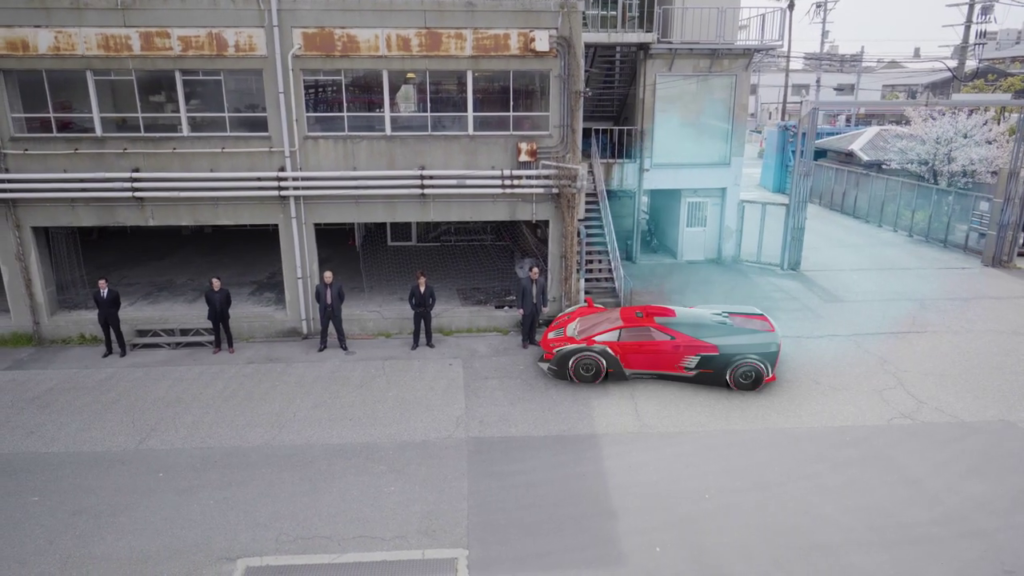

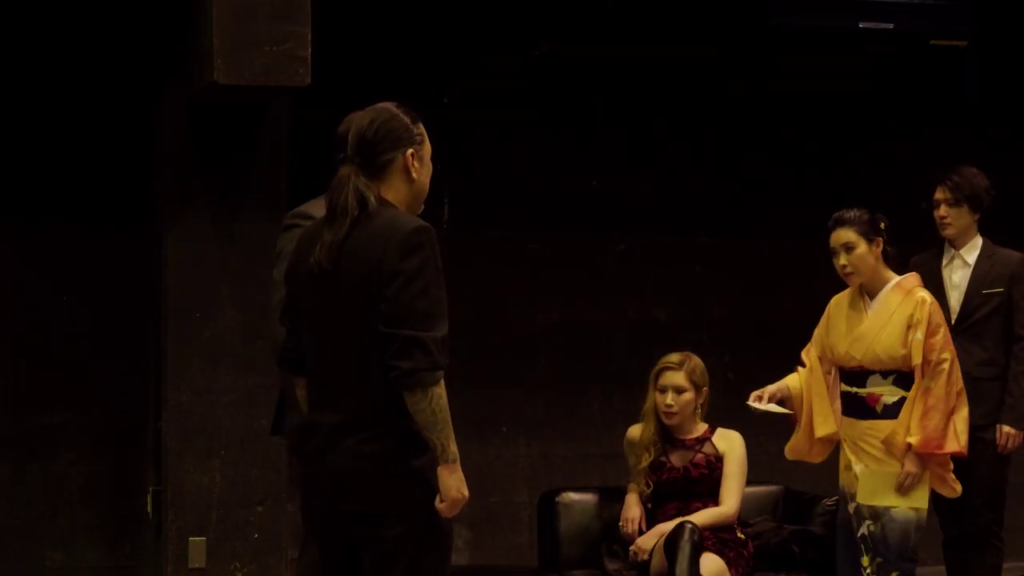
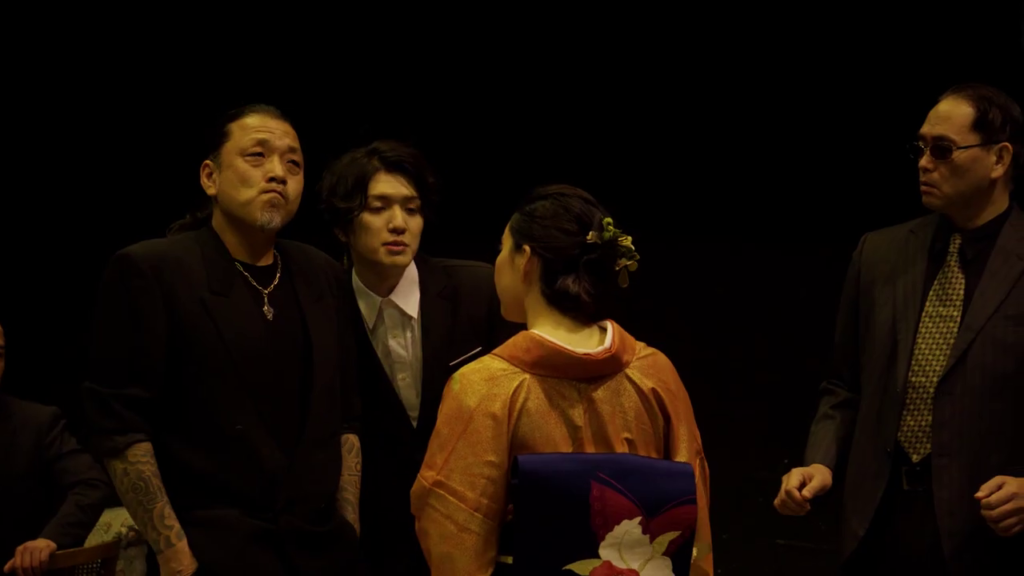
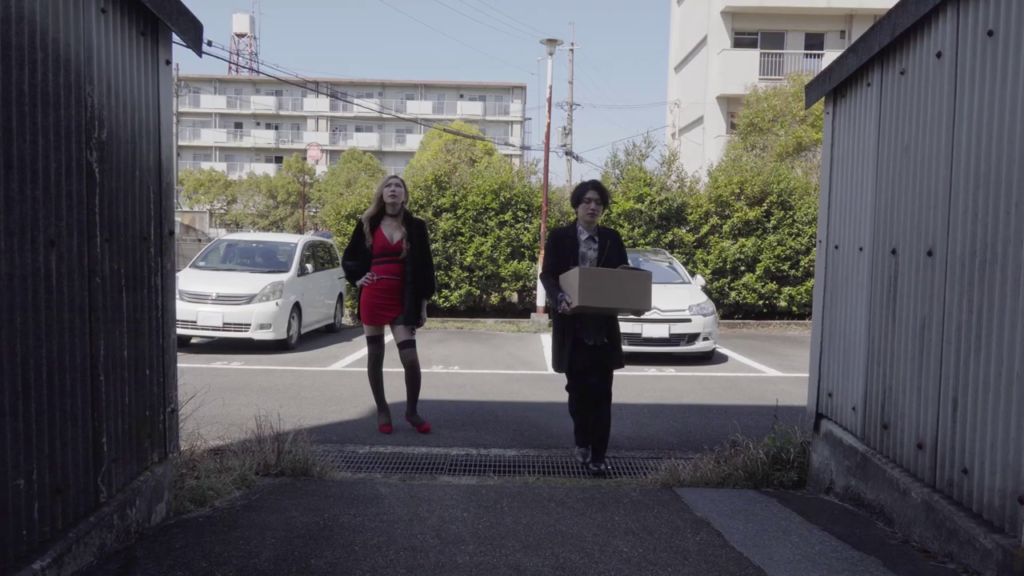
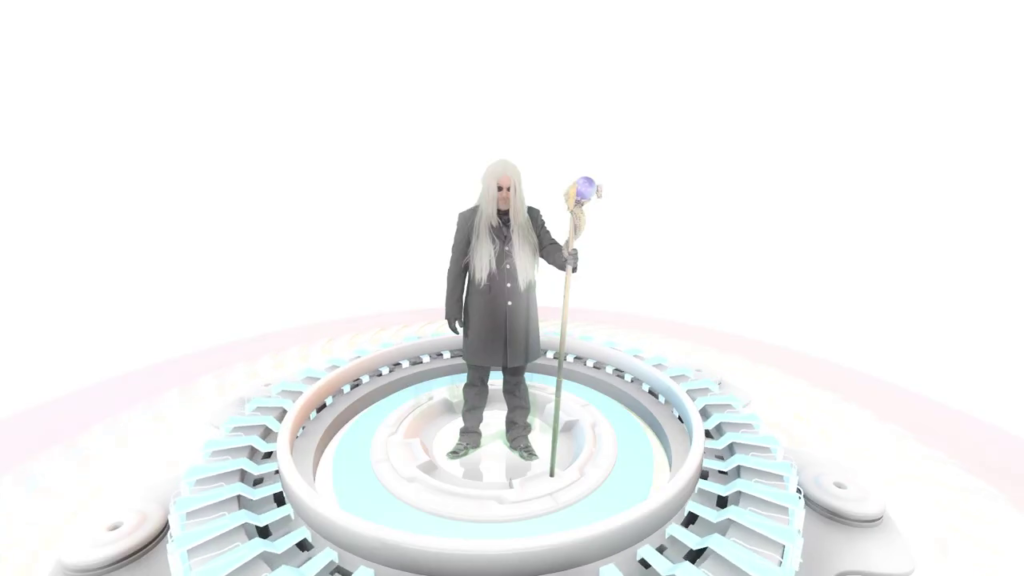
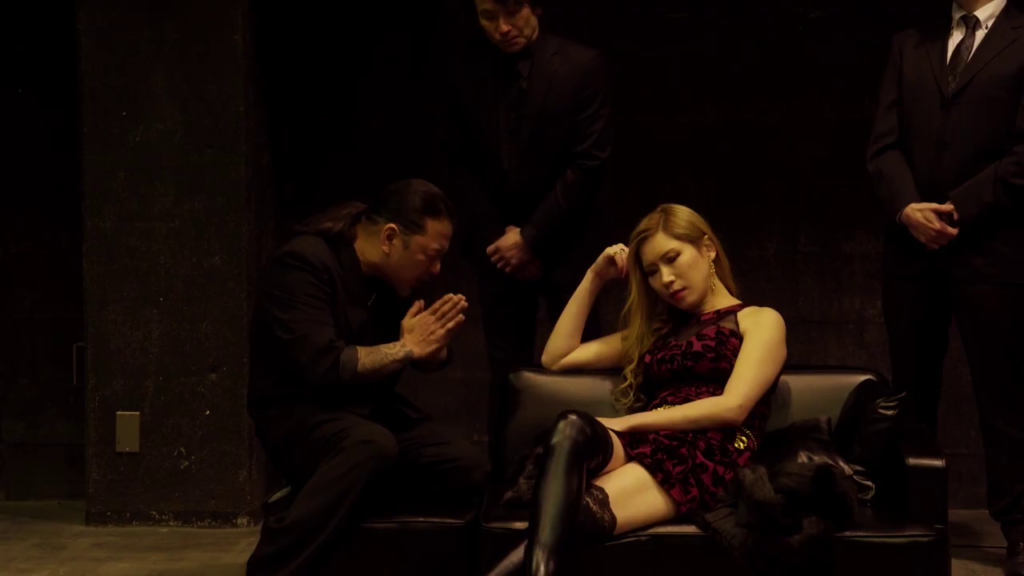
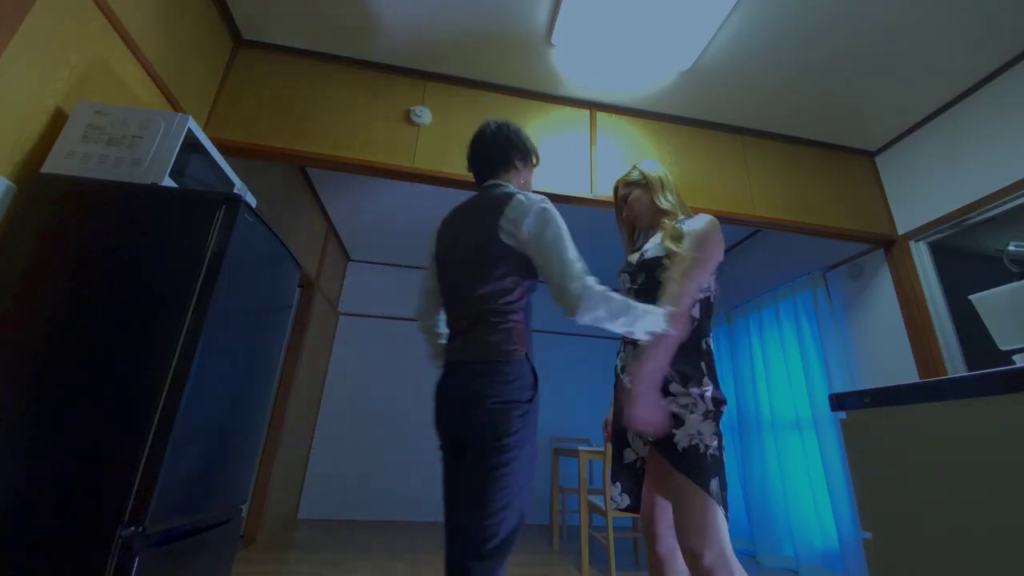
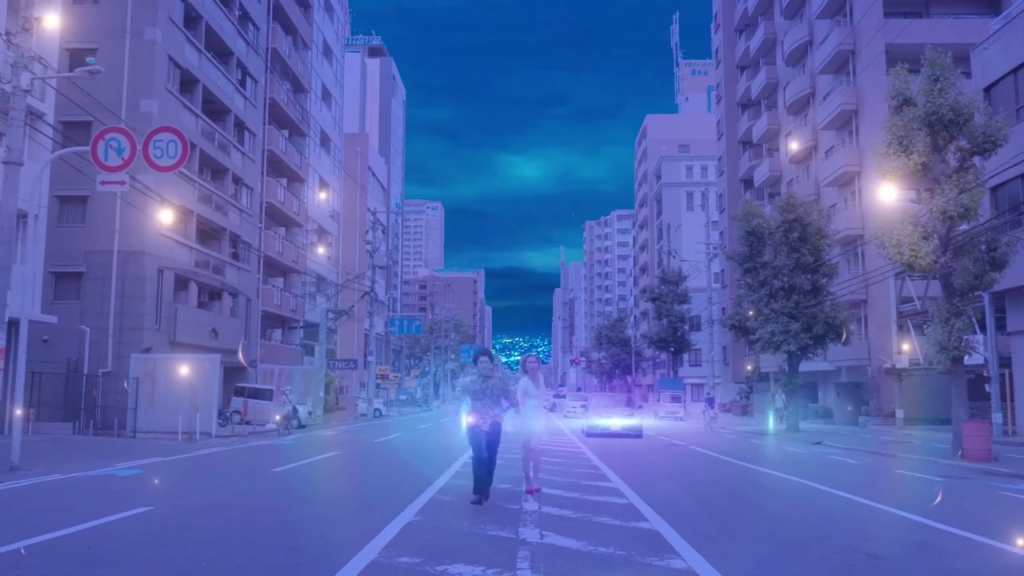

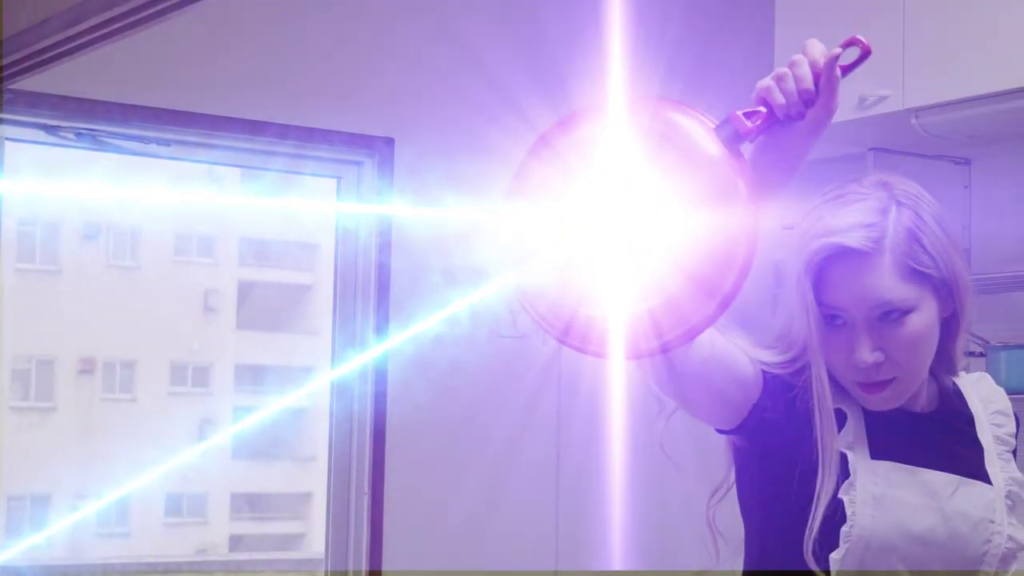
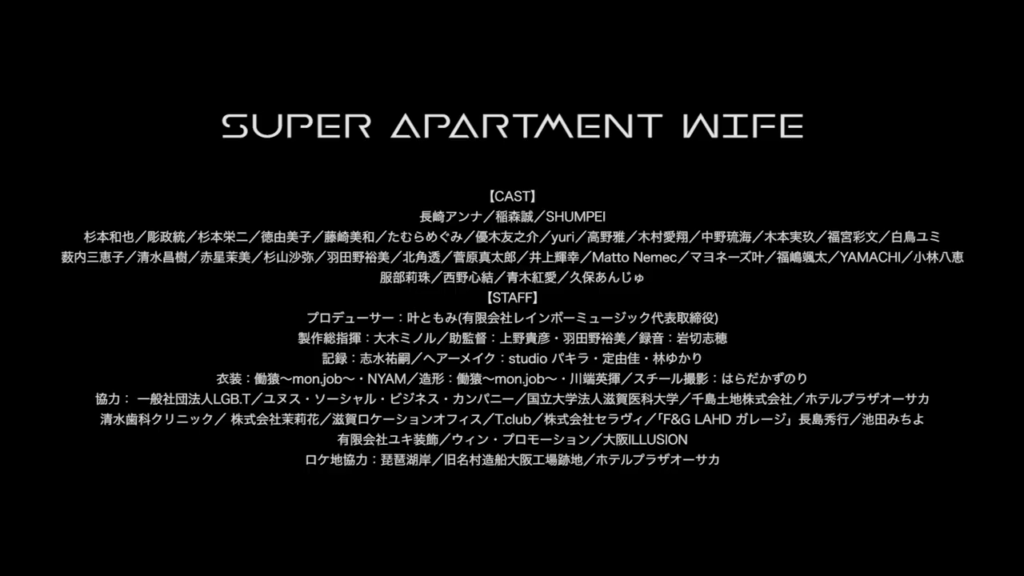
Super Apartment Wife (2021)
Film review #603
Director: Anna Nagasaki
SYNOPSIS: A yakuza boss needs to divert attention away from his mistress, Anna, as his wife is becoming increasingly suspicious of him. She is ordered to move in with newcomer Sho Nagasaki, and pretend to be his partner. However, the relationship becomes complicated when the yakuza boss has to engineer their “break up,” as well as the small matter of Anna being the daughter of an evil God who wants to wipe out humanity…
THOUGHTS/ANALYSIS: Super Apartment Wife is a 2021 sci-fi film. Starring, written, and directed by Anna Nagasaki, the plot concerns a yakuza boss who needs to hide his mistress from his suspicious wife. They plan for a newbie, Sho Nagasaki, to pretend to be her partner, and have her move in with him to try and fool the private detective the boss’s wife has hired. A simple enough plot, which I’m sure has the potential for some comedy or typical romance stuff, but there’s no real sense of what the film should be: I think it’s mostly meant to be taken seriously, but the stunted and sparse dialogue from the main characters makes it difficult to get to grips with what they are thinking. The whole film seems to have very little idea what it is doing, with Nagasaki never having written, directed, or starred in a film (her background is as an influencer). I think there’s a germ of an idea in here somewhere, but it fails to blossom in any way.
If you think the plot is already quite odd, then we haven’t even addressed the really weird stuff yet: it turns out that Anna is the daughter of “Darkness of Love” (it’s hard to translate the Japanese name), who is basically evil God, who wants to destroy humanity and replace them with more interesting species or something. Stranger still, it is implied this God (who looks like he belongs in The Matrix) is the Christian God, as he talks about creating Adam and Eve and whatnot. He visits Anna and reveals who he is, and tries to tempt her to embrace her evil powers and destroy humanity. We get there’s something special about her earlier because of these odd flashbacks of her Mother telling her not to get emotionally involved and accidentally unleash her demon powers or whatever, and there’s also this odd scene at a dentist as a flashback, which I can’t remotely fathom why it is in there or what it is meant to signify. So anyway, Anna eventually is consumed by her evil powers as she thinks Sho is seeing another woman, who is actually part of the yakuza boss’s plan to break up the couple so his wife doesn’t get suspicious, and this other woman is actually one of God’s other children, and maybe the yakuza boss’s wife is too? Honestly, I got completely lost at this point, as the film turns into this battle for the Earth at it’s climax, and everyone duking it out with God-like powers, and the yakuza trying to shoot them. The whole experience is just so surreal and chaotic I’m still at a lost of how to process it. Fortunately (?) the film does have a happy ending, as Anna and Sho have a kid and live happily ever after or something, but again, this just doesn’t really follow on from the madness that ensues at the climax; it’s just a bunch of half-cooked ideas thrown together with barely any structure to make them stick.
What makes this film feel truly amateur is the production and effects: a lot of the film looks like it was set on a stage at a local theatre, or an industrial estate just around the corner. The CGI is all very basic 3D models, and the greenscreen effects are clearly not done right, as they bleed into the actors constantly, The whole film (if this even counts as a film) is a half-baked mess of ideas, with zero chemistry between the characters to create any sense of romance or drama, and a bizarre angle concerning an evil God wanting to wipe out humanity that adds a completely different level of incomprehensibility. It clearly has no budget and a severe lack of expertise, so you can’t be too hard on the end product based on what it was working with, but there are some things which would have been easily improved. I can see what it’s trying to do, but every step it takes towards it is misplaced and ends up somewhere completely different. Probably worth a watch only if you really want to indulge in something completely insane and devoid of sense.
-
#602 – Geostorm (2017)
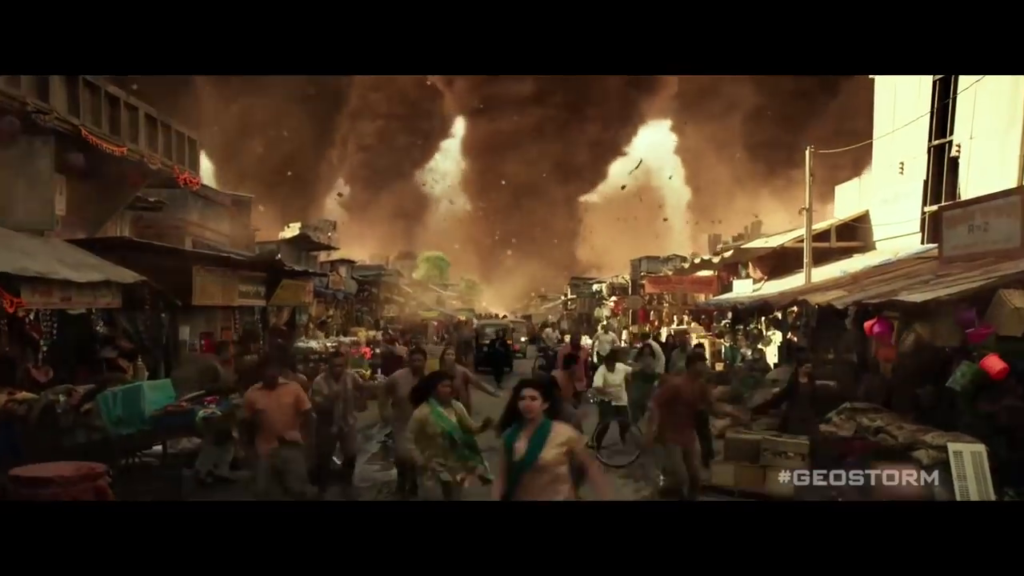
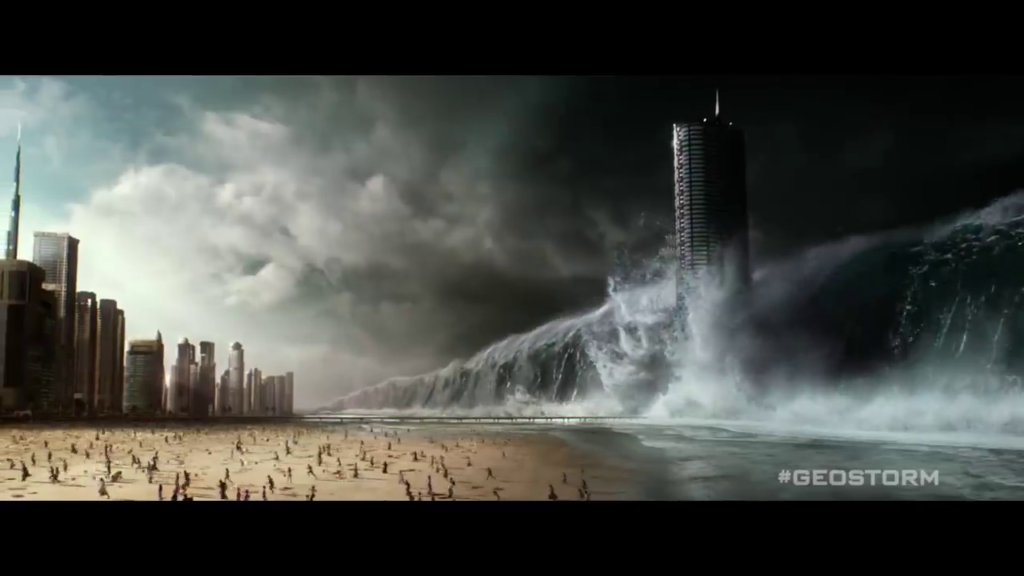
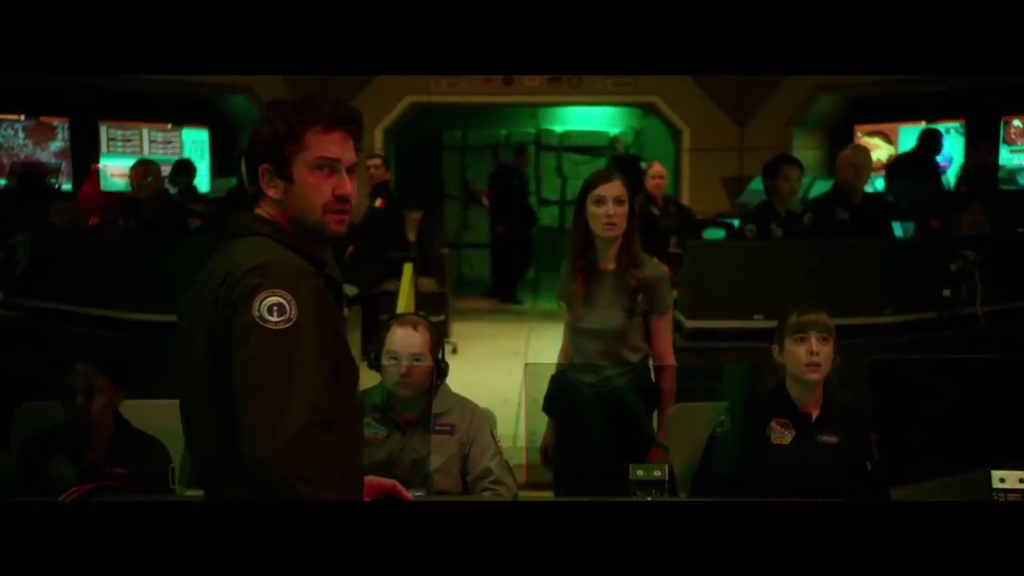
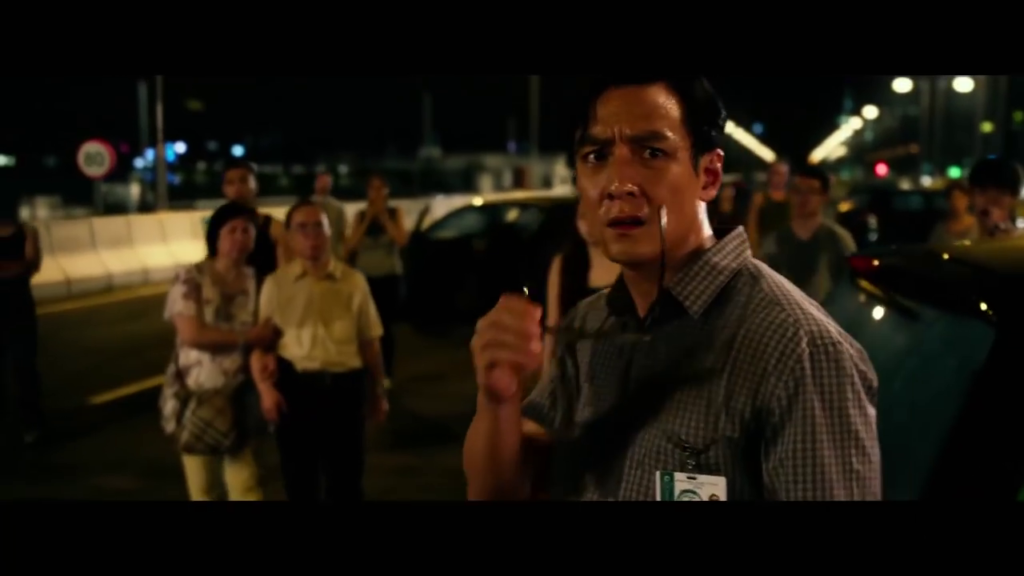
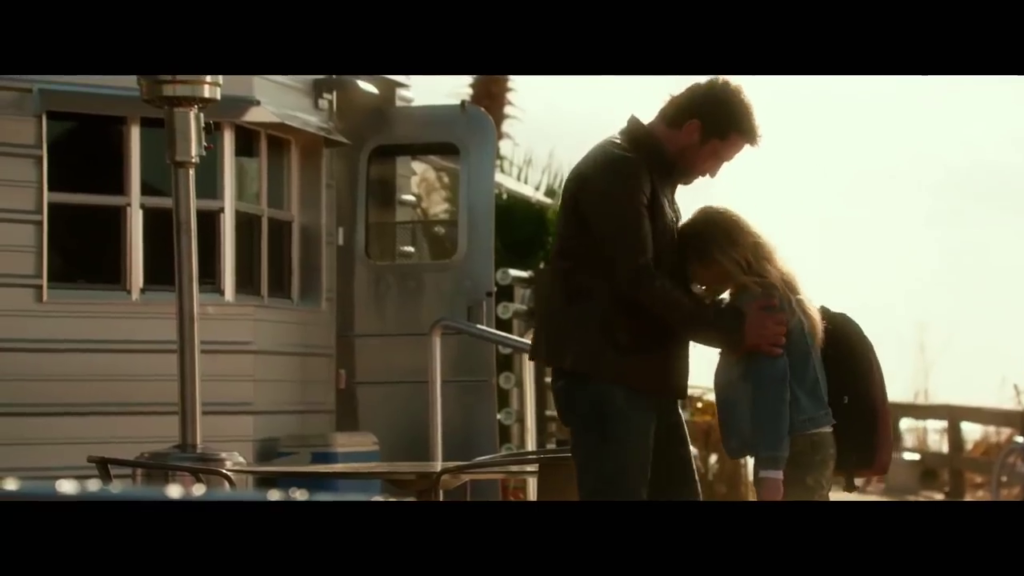
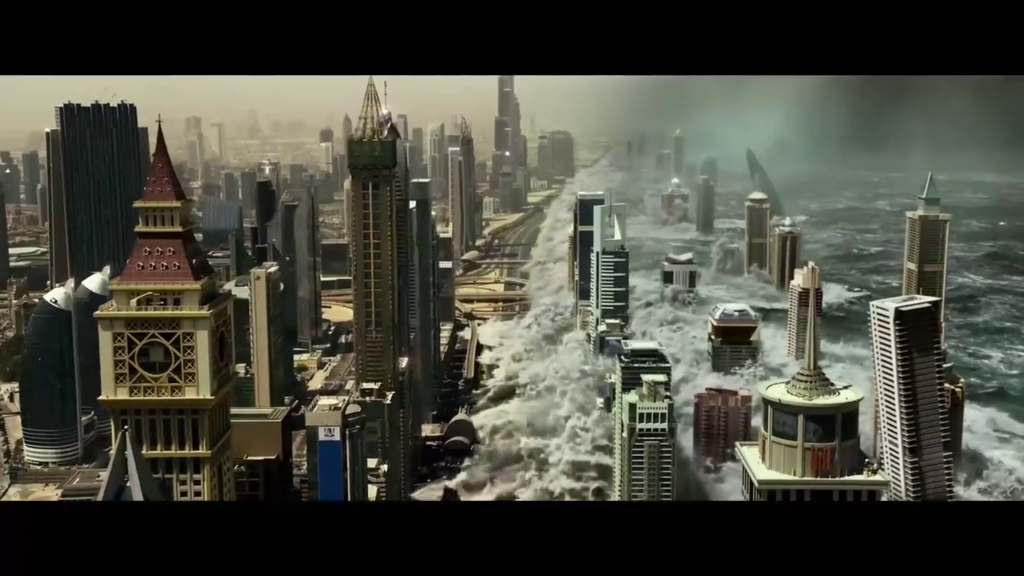
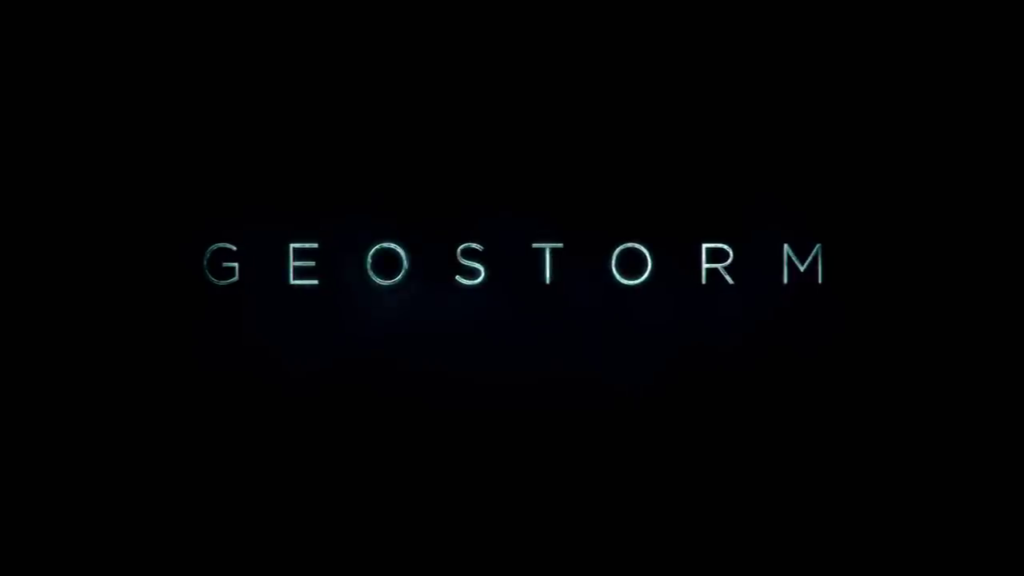
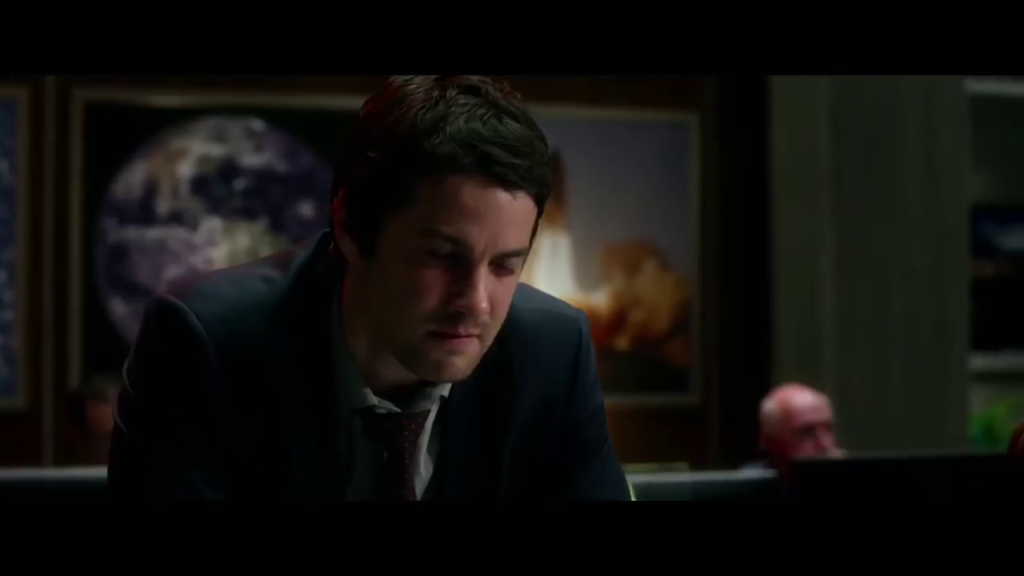
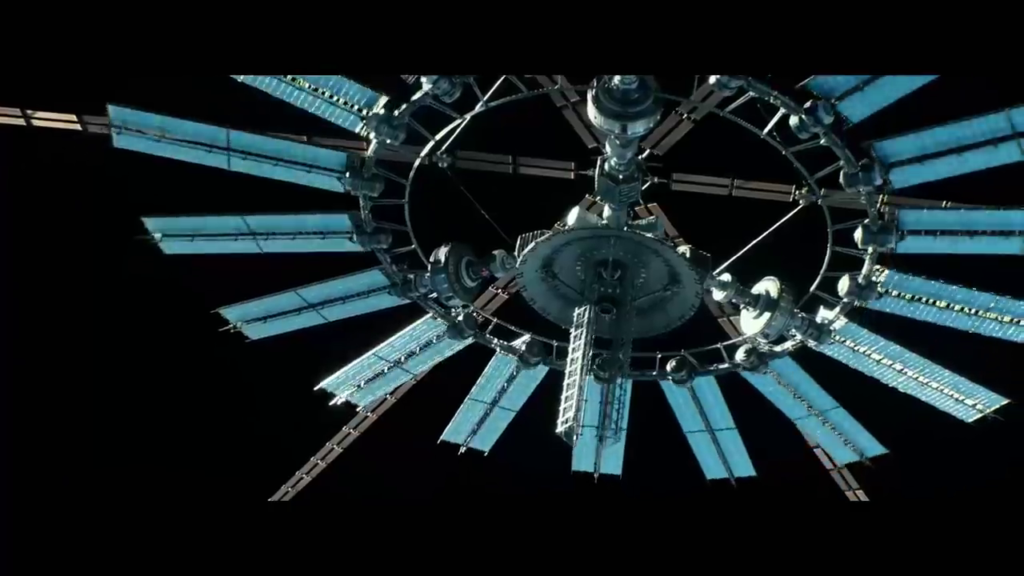
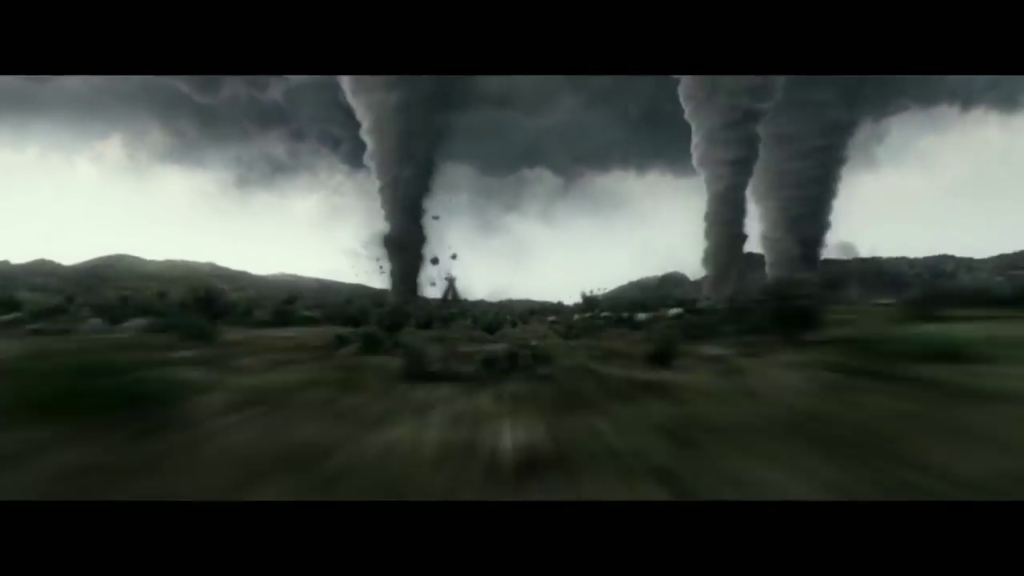
Geostorm (2017)
Film review #602
Director: Dean Devlin
SYNOPSIS: In the future, a global satellite network controls the Earth’s weather to prevent it from developing into extreme storms that would cause mass destruction. When the satellite starts to malfunction, the scientist who developed the system is called back to investigate and fix it, he finds that the malfunctions may actually be sabotage…
THOUGHTS/ANALYSIS: Geostorm is a 2017 sci-fi film. The film starts off with a narration that could probably have served as a film in itself: Earth is plagued by extreme storms that threaten mass destruction, and to counter this, scientists led by Jake Dawson develop a satellite network codenamed “Dutch Boy” to disperse these storms. Jake is removed from the project after he activates Dutch Boy without approval to disperse a storm over Shanghai. A year later, his brother, working for the U.S. government, persuades Jake to return to investigate a malfunction onboard Dutch Boy, which he suspects is sabotage, leading to a whodunnit scenario before more disaster. All of these elements are very formulaic, and offer no originality. Being primarily a disaster movie, the story is secondary in favour of the big destructive scenes of cities being laid to waste against the force of nature, but weak CGI dilutes this aspect too, leaving a film is very little going for it. There’s a little bit of mystery, disaster, and drama, but nothing is developed strongly enough to serve as the film’s backbone, thus leaving a bit of disconnected mess.
Despite all this, it’s certainly not an unwatchable film: it’s entertaining enough, as long as long as you don’t over think it. Character development is sorely lacking, so you’re never really getting a sense of peril for the situations they are in. The overarching mystery does try and lead you astray, but the actual solution isn’t really all that exciting to present that much of a twist. It’s a bad film, mired by poor effects and an obvious inexperience on the part of Dean Devlin in his directorial debut, but it’s non-offensive, and you can sit through it if you switch off your sense of reason off for an hour and forty minutes.
-
#601 – The Penitent Man (2010)
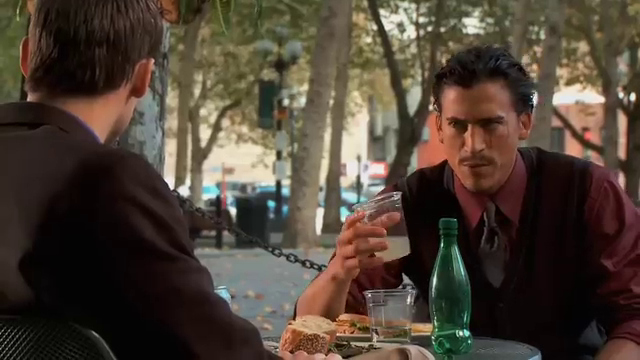
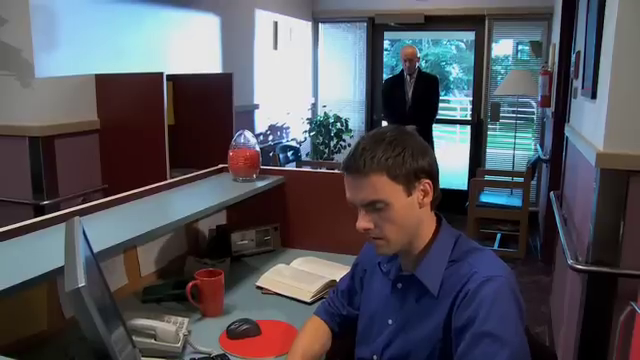
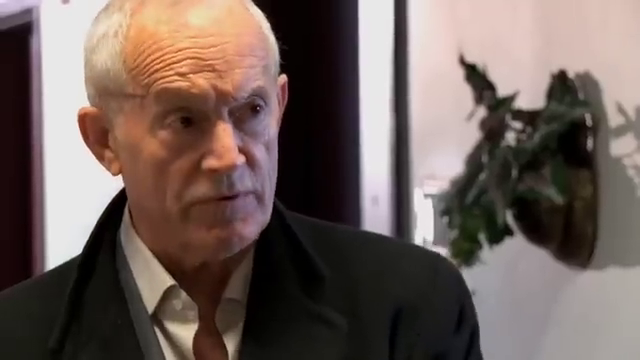
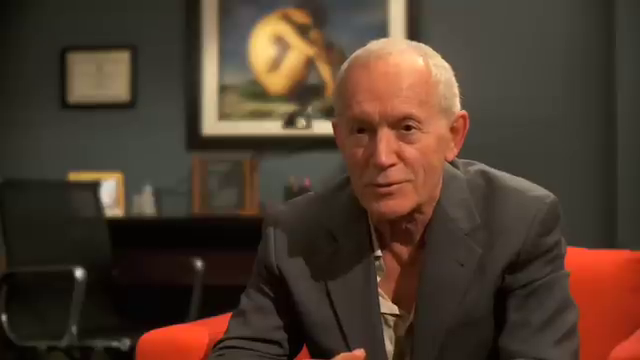

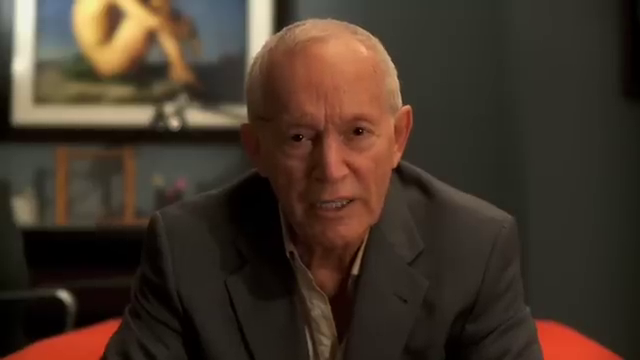
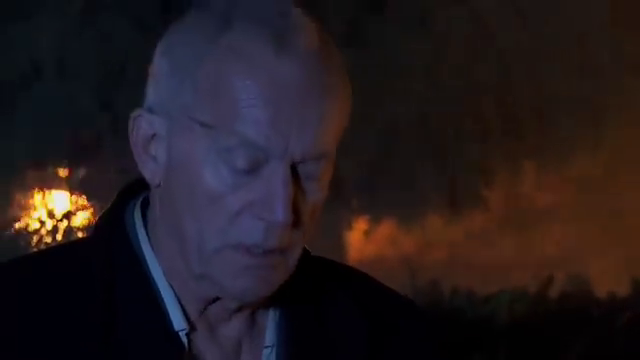
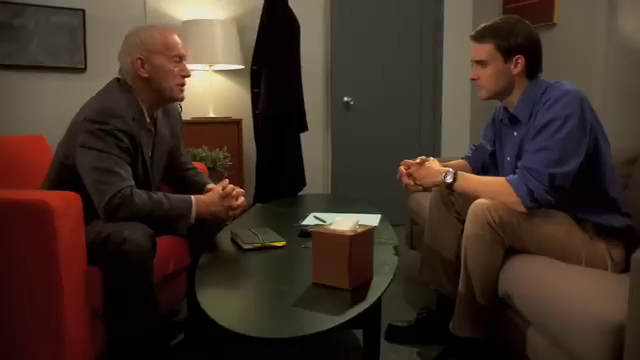

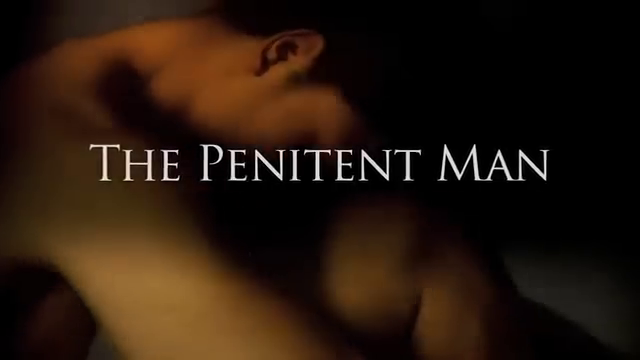
The Penitent Man (2010)
Film review #601
Director: Nicholas Gyeney
SYNOPSIS: A psychologist with troubles with his finances and marriage is visited by a long term patient who makes a startling claim – he is from the future, and he has travelled back to prevent the discovery he made from ever being used, as it brought about the destruction of society as we know it…
THOUGHTS/ANALYSIS: The Penitent Man is a 2011 film. Psychologist Dr. Jason Pyatt is visited by a patient, Mr. Darnell, who he has been sporadically over the past year. He confides in the doctor a secret: that he is from the future, where an invention he made to look through time has caused the collapse of society, and he has travelled back to prevent his discovery from being made. The film is essentially a drama film, with the two main characters sitting and talking, followed by two other characters sitting talking…essentially, there is a lot of dialogue in this film. You may be constantly waiting for something to happen, but nothing ever does. If the dialogue was captivating or explored ideas or concepts with some depth, it would be interesting, but it barely scrapes the surface of its ideas; instead just leaving things as generalities. The fact that nothing is really shown could generate an interesting sense of ambiguity about whether the man is telling the truth, but in the opening scene we see him in the future and time travel, so it just eliminates that avenue for the film to build on.
The whole film feels very amateur-ish, making it feel like someone saw The Room and took it as a “how-to” for filmmaking. The aforementioned scenes of flat dialogue don’t really develop the characters or story, and there’s a severe lack of purpose or direction. The film is also extremely heavy-handed with it’s imagery, and is obsessed with close-ups. For example, the beginning is filled with close-ups of wedding rings on the characters fingers and other paraphernalia to establish them, but it just doesn’t seem really necessary. Another issue is that the plot is entirely predictable, and unfolds exactly as you think it will: you’ll easily guess who Mr. Darnell really is, and who his friend was who tried to stop him. Again, there’s a heavy-handedness and inexperience that destroys any sense of tension or subtlety.
Lance Henriksen as Mr Darnell is the only real good actor in this film, but even then, he feels misdirected, and working with a poor script. his scenes with Dr Pyatt (Lathrop Walker) feel so uneven because of the chasm of talent between them. Scenes between other characters are completely devoid of interest, and no one seems to know what to do with the camera during these long scenes, and it sometimes just focuses on a character who is being spoken to, which is very odd. It’s easy to sum up this film as a very amateur and misguided attempt at being a smart film: the acting is dire, the camerawork lacks direction, the plot is predictable, the imagery is heavy-handed, and again, it really feels like someone took The Room as a guide for how to make films. There’s nothing really redeemable about the film, or anything interesting to take away from it, as it’s dull characters and completely predictable plot just leave you waiting for the film to end.
-
#600 – In Time (2011)
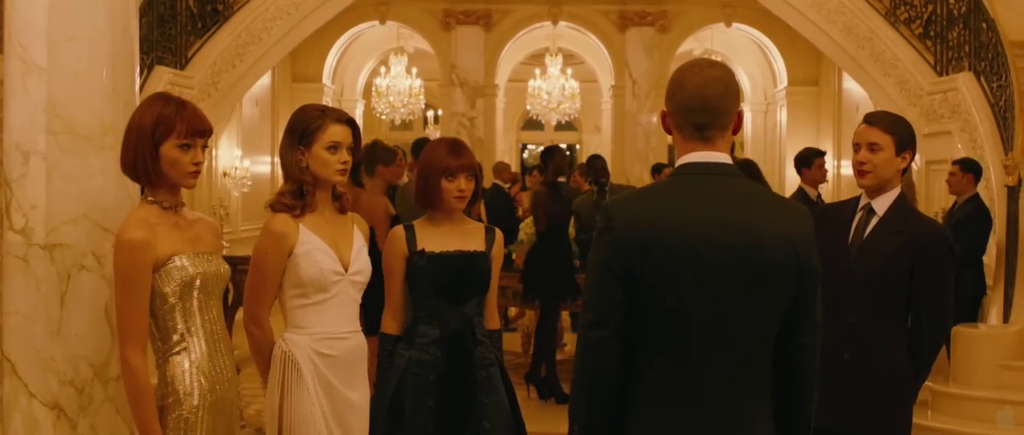
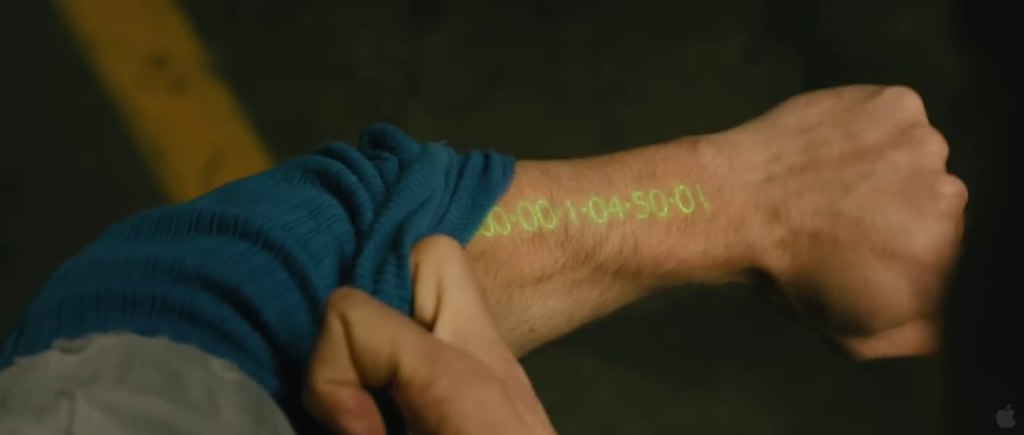
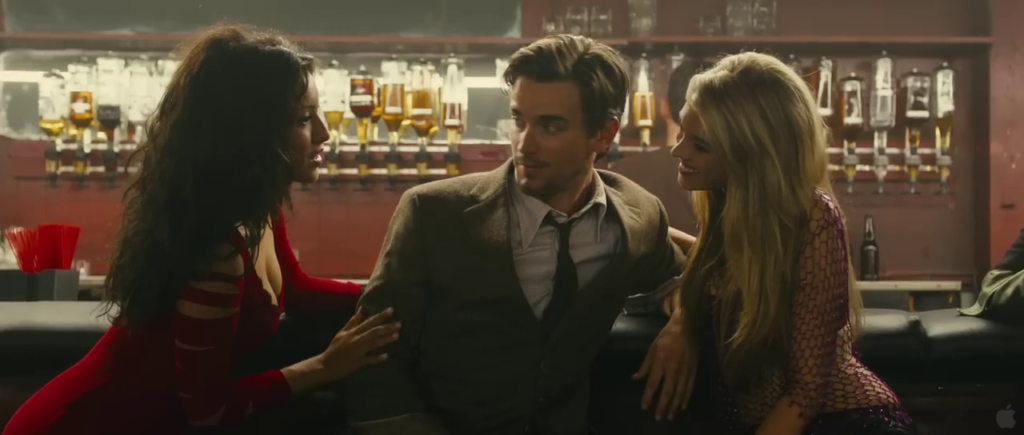
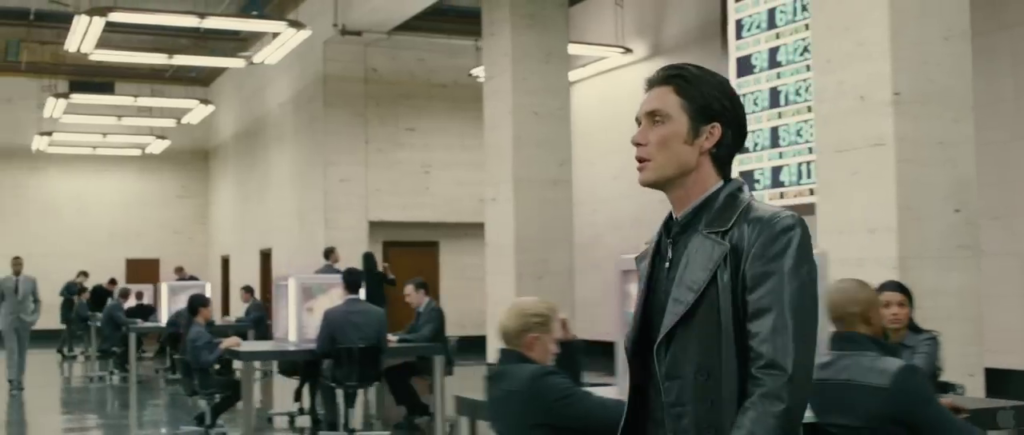
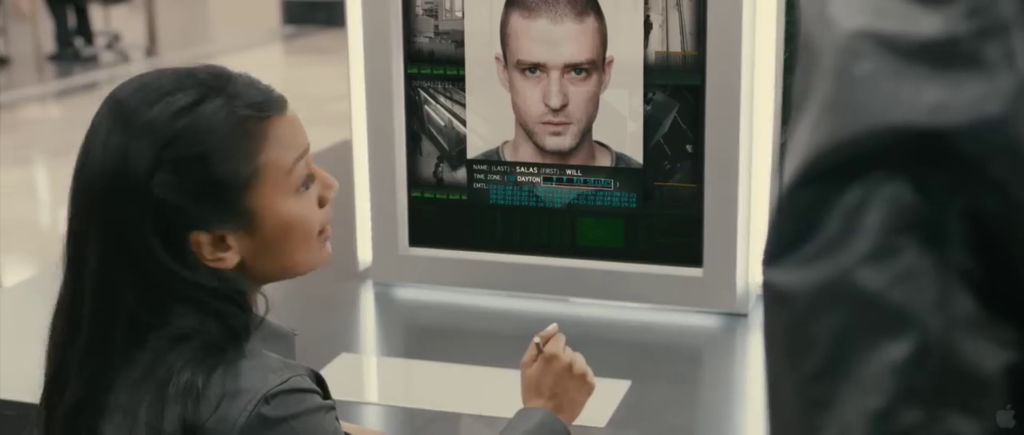
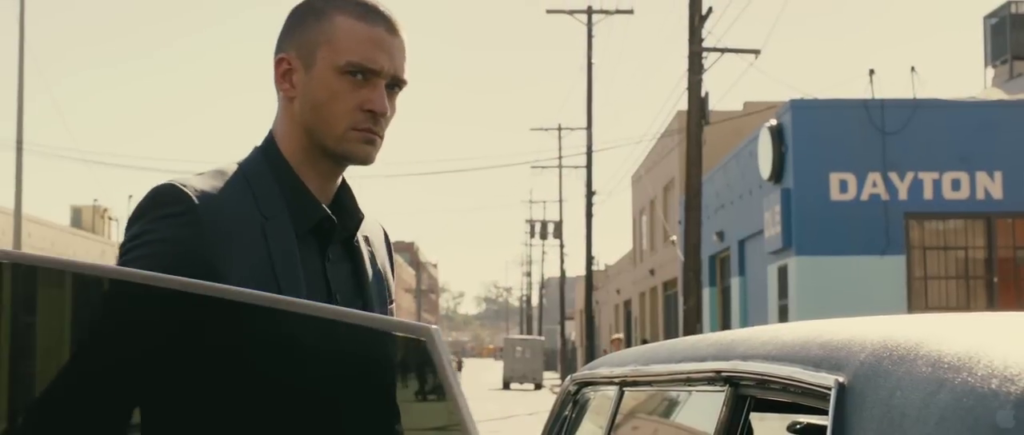
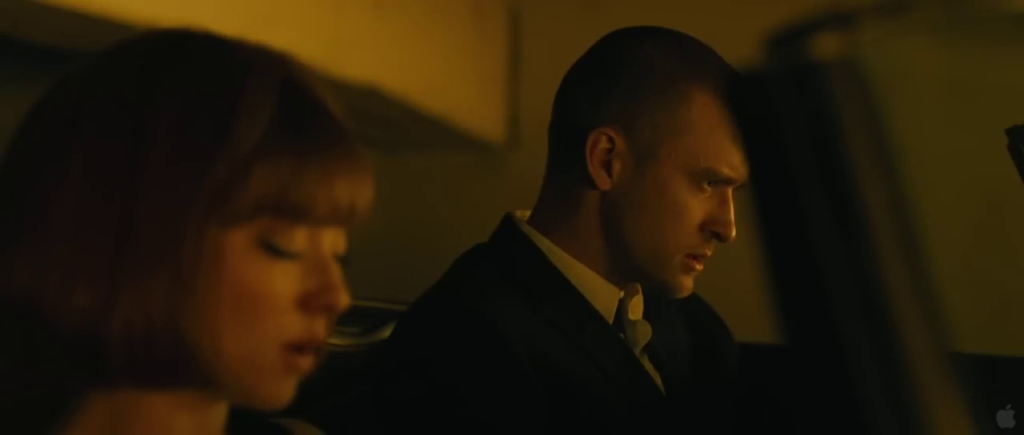
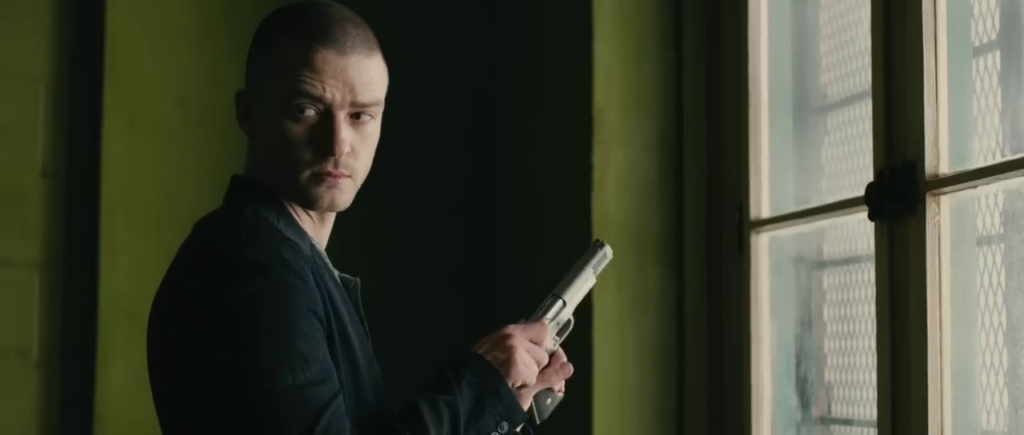
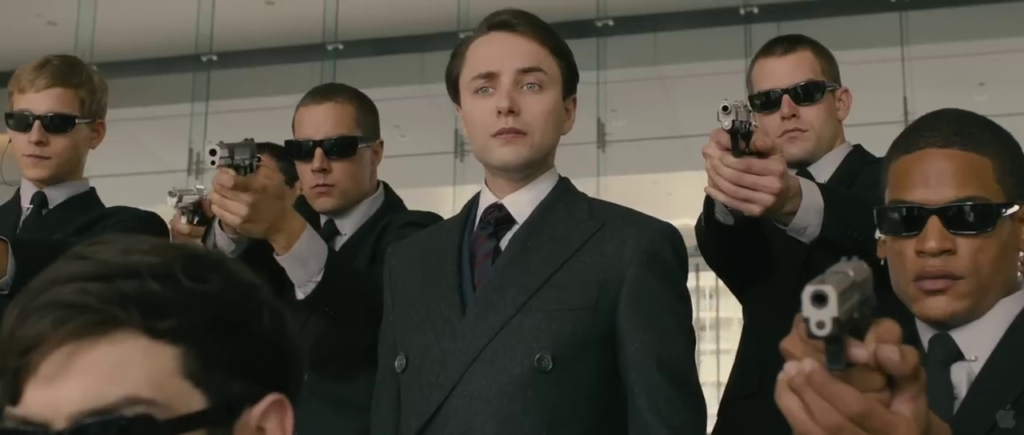
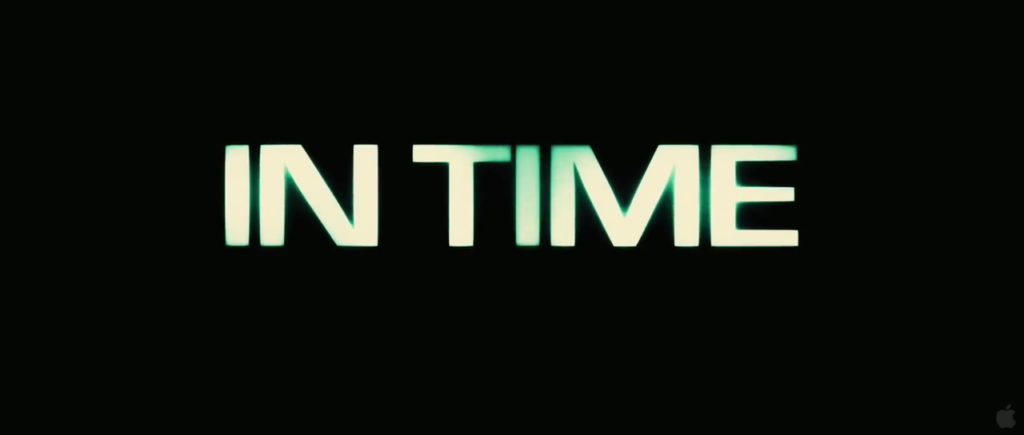
In Time (2011)
Film review #600
Director: Andrew Niccol
SYNOPSIS: In the future, time is the only currency: people stop aging at the age of twenty five, and after, must work to earn time on their lives, as well as using time to pay for everything else. Will Salas works in the ghetto, earning just enough to live day-to-day, when he meets a man at a bar who has over a century left on his life. The man, who has apparently been living over a hundred years, has grown tiring of living, and transfers all his remaining time to Will. Faring that having so much time could upset the balance of the economy, Will becomes hunted by Timekeepers whose job it is to restore order, while Will decides to use his new found time to fleece the system for everything it has…
THOUGHTS/ANALYSIS: In Time is a 2011 sci-fi film. Set in the future of 2169, time has become the only currency, where people stop aging at 25, and must get extra time on their lives by working for it, but also must pay for everything with that same time as well. It’s a fairly interesting set-up, although I don’t think overly novel. The downfall of the film is that it in no way explores the concept it leads with. At the start, we get a scene between main character Will Salas and who we are lead to believe is his wife, but turns out to be in fact his Mother, because everyone stops aging at the age of twenty-five, you would have no idea how old someone was. This seems like some thing that has potential to be explored, but it barely gets a mention. Another big part of the film is the portrayal of the gap between those who have to earn time day-by-day to keep from dropping dead, and those who have hundreds of years on their clock so they can practically live forever, thus creating a dystopia of inequality. The trouble here is, this doesn’t really seem any different than the systems of inequality we have today. Obviously science-fiction works best when it serves as a reflection of contemporary society in some way, but because the film’s concept is not developed or intertwined more closely with the core story, it becomes fairly irrelevant. We are often told about this system of inequality, and how people in the ghetto are fighting to survive, but every scene there is fairly calm and quiet, whereas you would expect people to be constantly fighting each other for seconds or minutes, particularly if they were at the end of their time. Therein lies the problem: the film tells you about the world, but what is shown rarely matches up to that, thus the film really tries to force feed it’s world to you, rather than letting viewers immerse themselves in it to explore for themselves. There’s also the fact that the future is hardly any different than our present, save for the time-based currency: all the cars, buildings etc. are things you would find in any city, and again, you’re just not immersed in this setting.
The plot proper concerns Will Salas (Justin Timberlake), a worker in the ghetto who meets a man from the rich zone with over a hundred years on his clock, who has grown tired of living after over a century. He gives Will all his time while he is sleeping, leaving just enough to throw himself of a bridge when it runs out. When Will’s mum dies as well from running out of time, Will decides to use his newfound time to take everything from the rich. It’s a bit of a leap from Will just trying to survive to becoming a revolutionary, as we aren’t really given any idea about his backstory or anything, and it feels like there’s a bit of a gap between suffering a loss to deciding to tear down the whole system. Will buys his way into the rich zone, and with the help of Sylvia Weis (Amanda Seyfried), the daughter of a rich banker whom Will initially kidnaps, the two embark on a Bonnie and Clyde style set of raids and robberies to distribute time from the elite to the people of the ghetto, disrupting the time-base economy, all the while being pursued by the timekeepers, who enforce the system. Given that the aim given in the film is for Will to bring down the whole system, the film instead just focuses on a constant chase between Will and authorities, never advancing the story in any significant way. In fact, the end of the film just states that they can’t up-end the system, and seemingly ends with the pair on their way to rob another time bank and just do what the film already showed ad infinitum. There’s also a small plot point that hints about Will’s Dad being killed for doing the same thing that he is doing, but this is mentioned off-hand once or twice and never becomes relevant to anything, which makes you wonder why it is mentioned at all.
Overall, In Time offers an interesting set-up, but ultimately fails to do anything with it. We are left with a world very similar to our own, and one that is too similar and thus unengaging, as the film constantly avoids developing it with any detail, or exploring any implications from its core concept. The characters are fairly bland, and Justin Timberlake’s performance hasn’t improved since his role in the sci-fi film Southland Tales, which had the same problems there. Unresolved plotlines, a lack of direction, and an absence of depth leave the viewer with a film that’s simple enough to follow and a bit of style, but wholly lacking in substance and direction.
-
#599 – Lifeforce (1985)
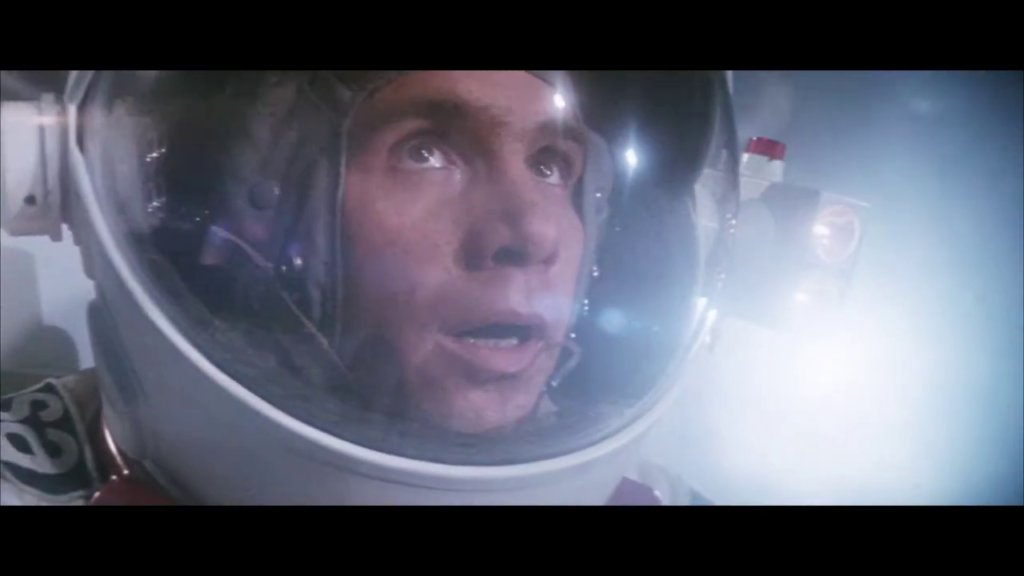
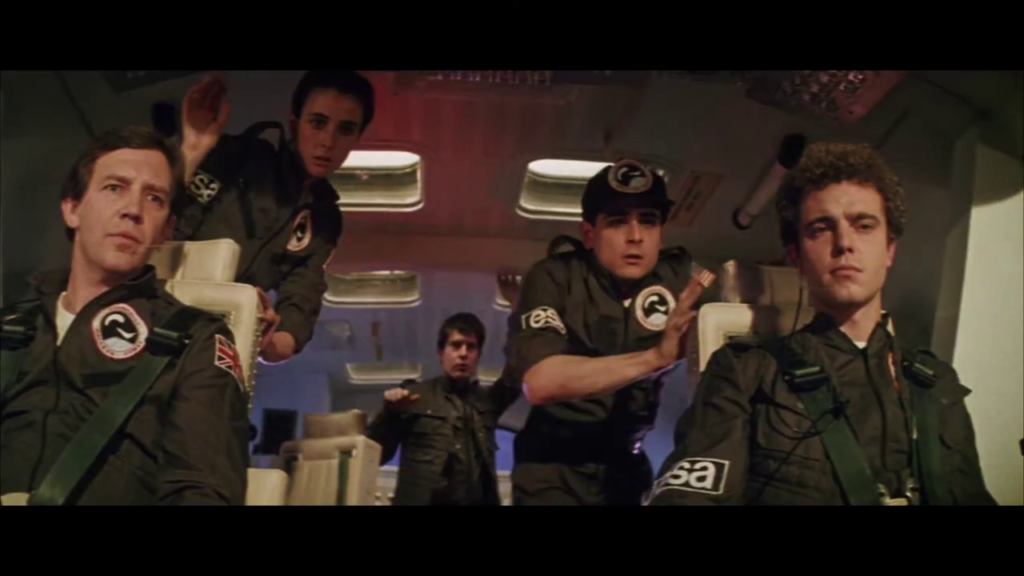
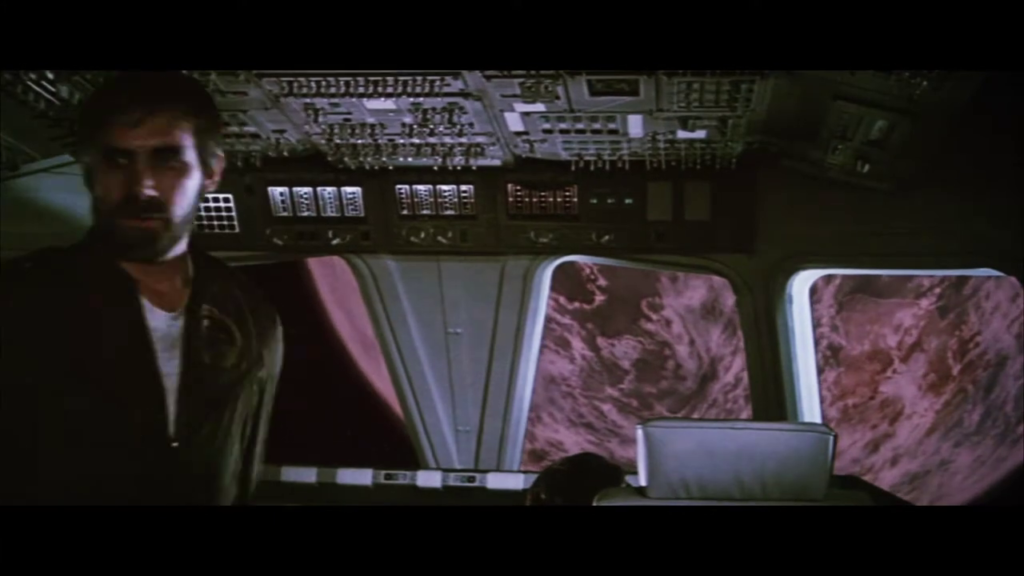
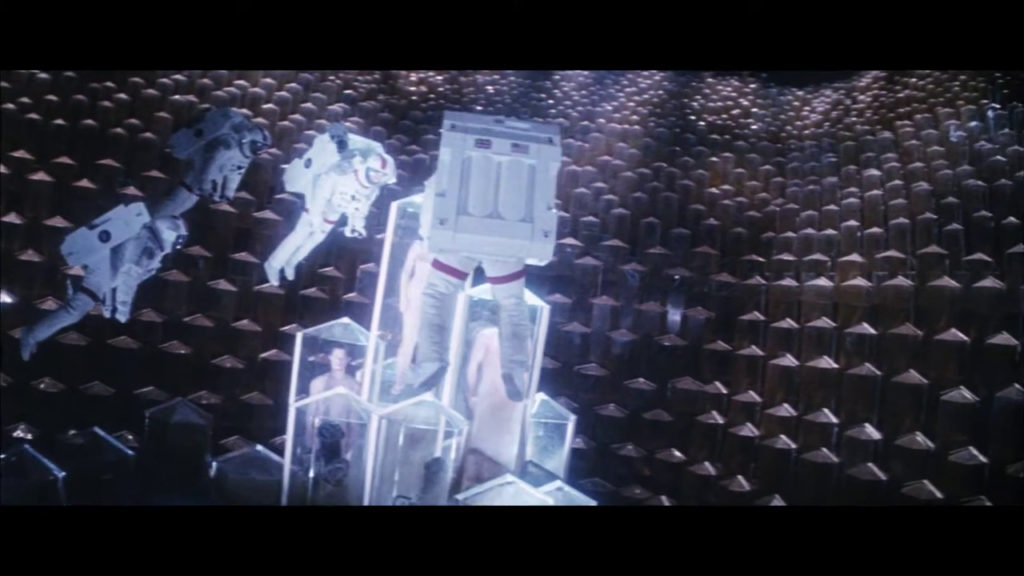
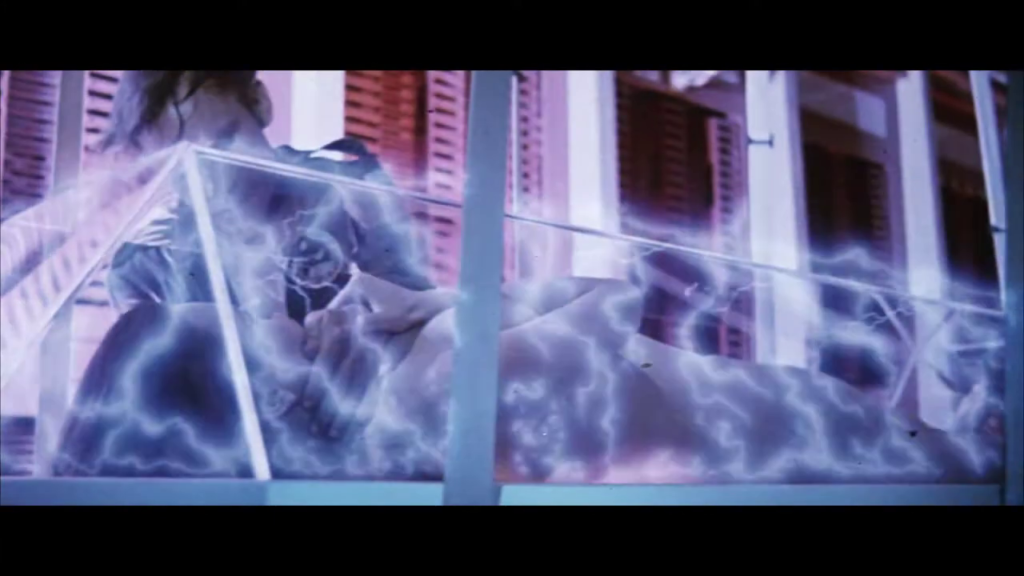
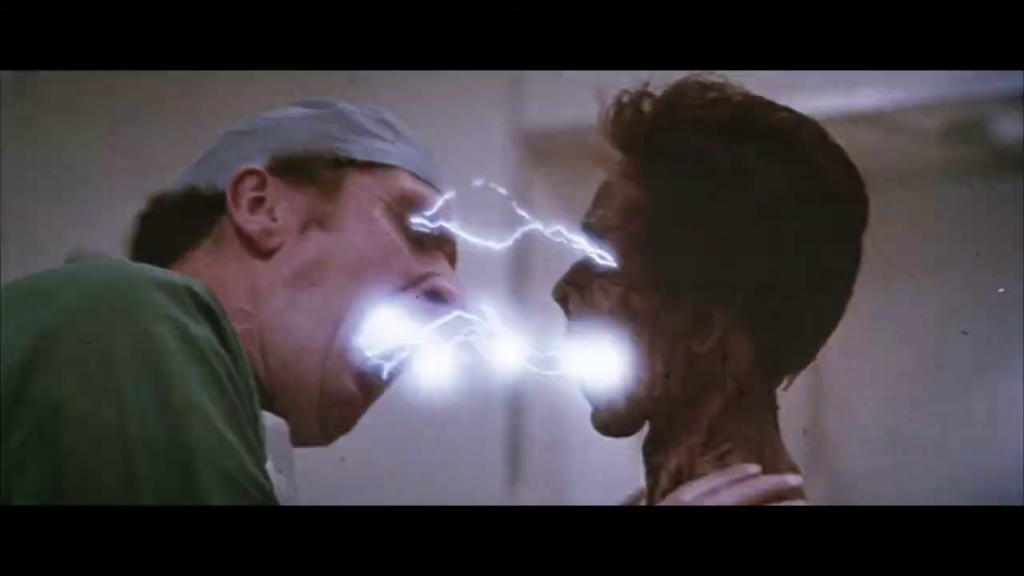
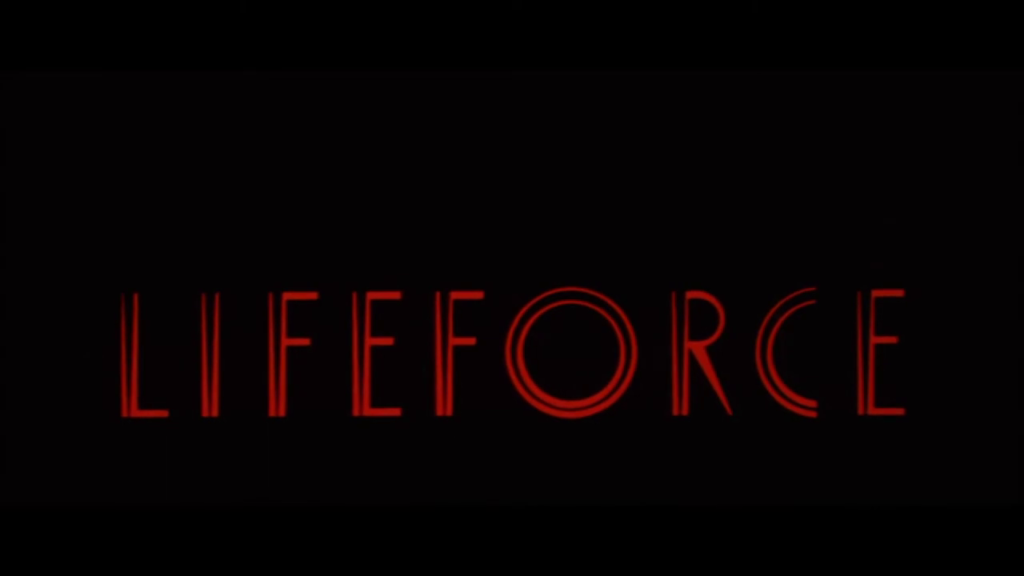
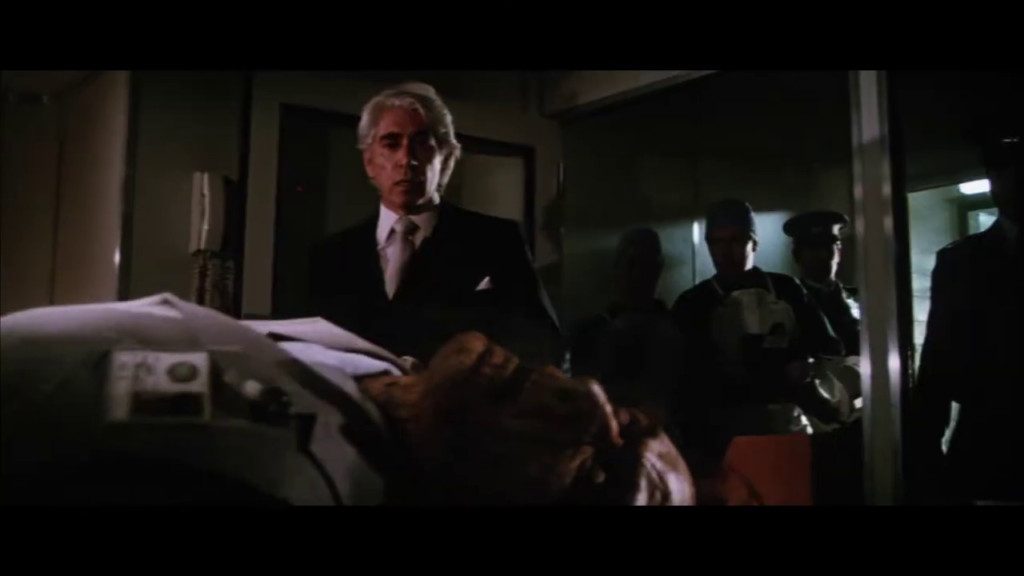
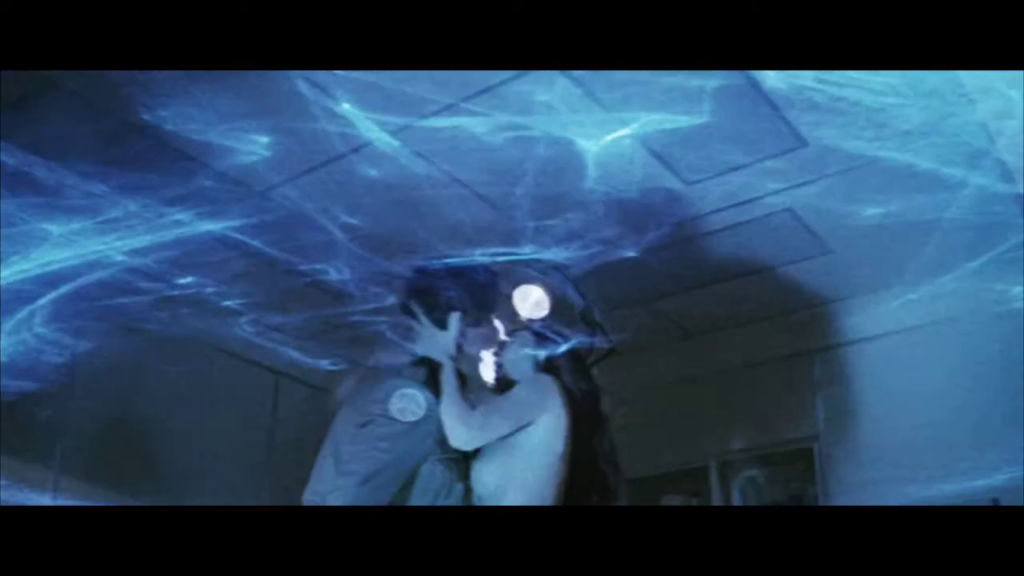
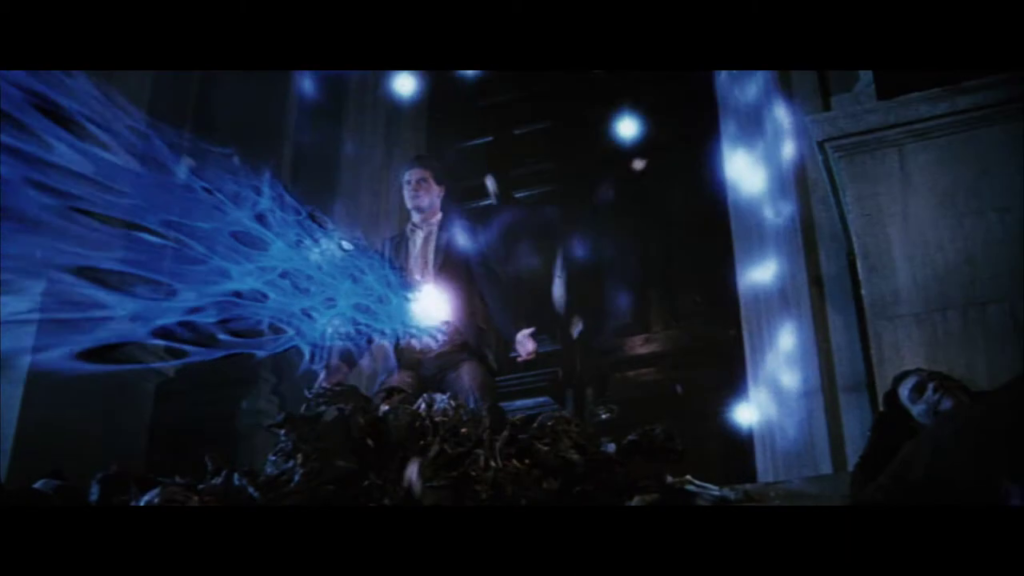
Lifeforce (1985)
Film review #599
Director: Tobe Hooper
SYNOPSIS: A space shuttle investigating Halley’s Comet finds a ship hidden in it’s wake. Inside they find three humanoid bodies, and bring them back to Earth. Upon arrival, Mission control gets no response, and send another shuttle to investigate. Aboard, they find the shuttle has been destroyed by a fire, and all that is intact is one of the preserved human bodies found on the alien ship. brought back to earth for study, the body wakes up and proceeds to start sucking the life out of people she encounters, setting off a chain effect that turns her victims into “vampire” like creatures that feed off others. Colonel Caine of the SAS joins forces with the sole survivor of the shuttle, who escaped via escape pod, to find the alien and stop her before she turns the human race into soul-sucking vampires…
THOUGHTS/ANSLYSIS: Lifeforce is a 1985 sci-fi film partly based on the novel The Space Vampires by Colin Wilson. A space shuttle investigating Halley’s comet finds a spaceship in its orbit, and aboard, they find three preserved humanoid bodies, which they decide back to Earth. When they are brought back by a second shuttle after the first one was mysteriously damaged and everyone aboard killed, the alien wakes up and starts sucking the life out of people, leading to a race against time to stop her before she infects everyone. Relying on a typical monster hunt with a sci-fi twist in the form of “space vampires,” the film wanders about through different locations and characters without too much direction other than stopping the monster. Everything is played quite low-key without theatrics (apart from a fair amount of female nudity), and the film revels in trying to create an eerie atmosphere more than anything else.
The film just keeps adding in more weird elements as it goes on, never stopping to really tie things together: there’s a feeling that the filmmakers just wanted to keep going after they could have stopped, turning it into a passion project of sorts. The flimmakers were given a bunch of money without much oversight and sent to make a movie, resulting in a film that you only really get with certain element of creative freedom. I like to call it the Zardoz effect: when a film has little to no oversight and creative juices just run wild, creating a product which never settles neatly into being a “good” or “bad” film, and refuses categorisation due to a certain restless creative energy. Lifeforce, to be clear, is nowhere near the brazen, lucid, fever dream that Zardoz is, but there’s just enough weirdness to make you think twice about how to judge it.
There’s not really much to the characters, although the performances are pretty good: the film relies more on atmosphere than stand out personalities. One part of the film which does leave an impression is the practical effects, with the scenes of people having their lifeforce sucked out and becoming deflated husks having that creepy horror vibe actually rather impressive, and a testament to the power of practical effects. Overall, Lifeforce takes the classic b-movie monster schtick and runs with it past its limits, and just revels in the thrill of making films. The result is difficult to judge in terms of good and bad: it’s just bizarre, although not enough to really make it stand out.
-
#598 – Meet Dave (2008)
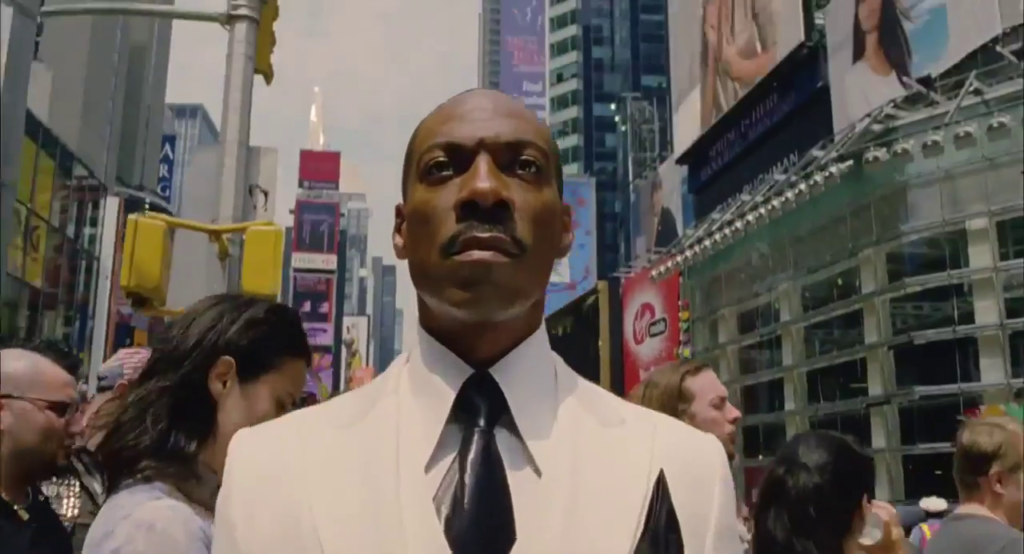
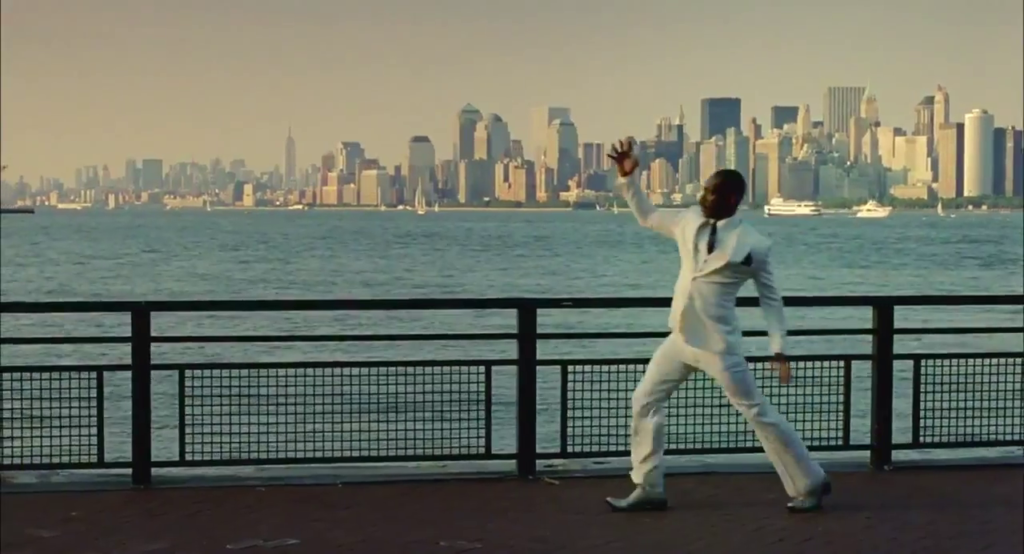
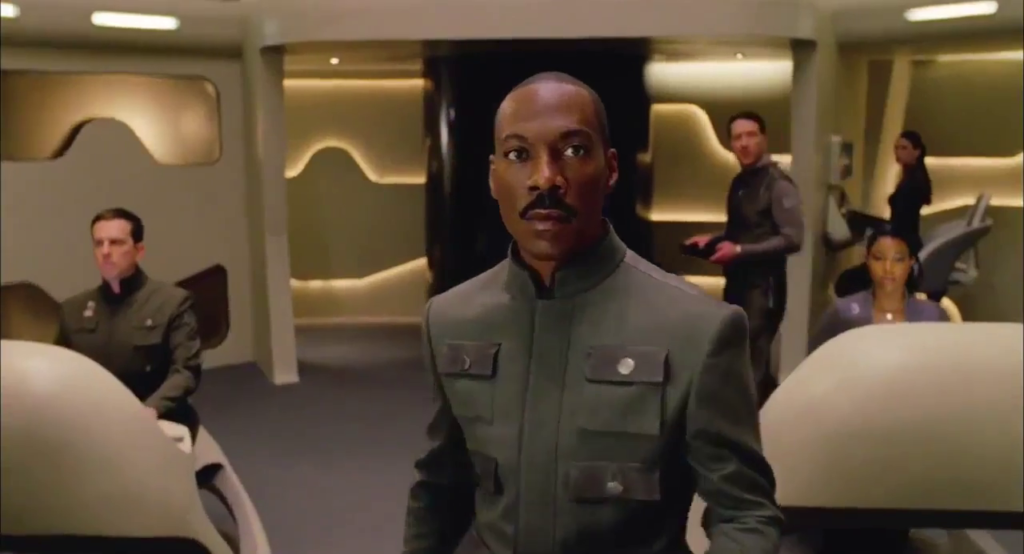
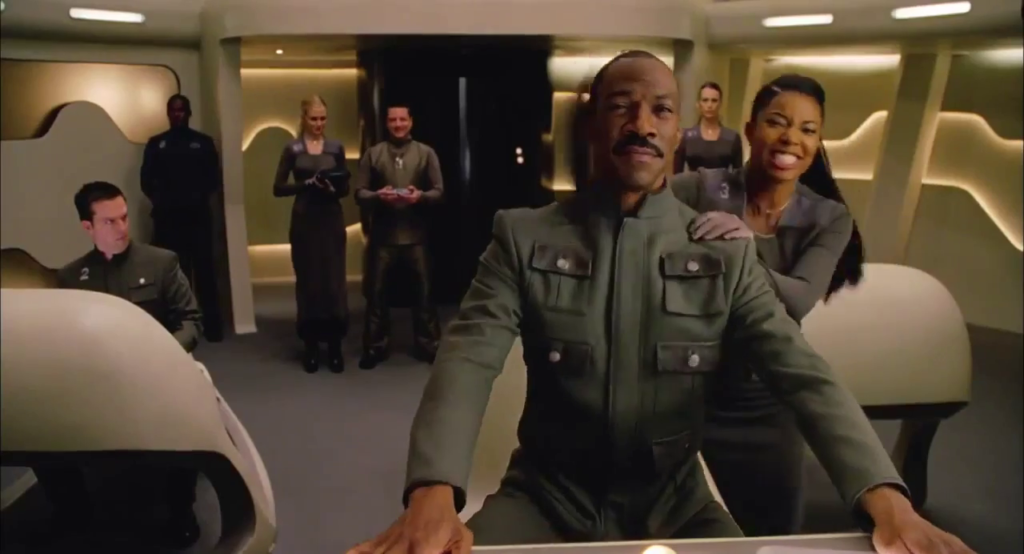
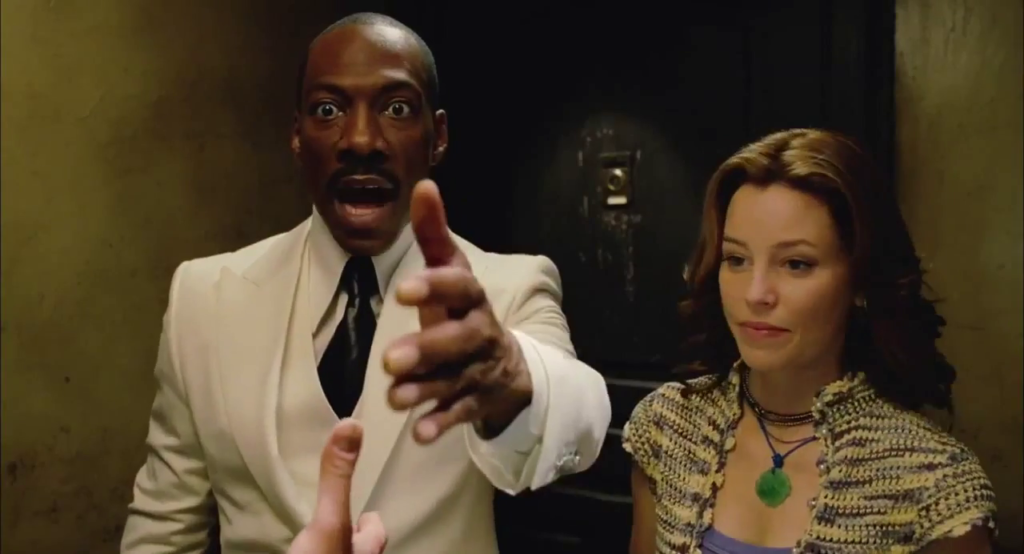
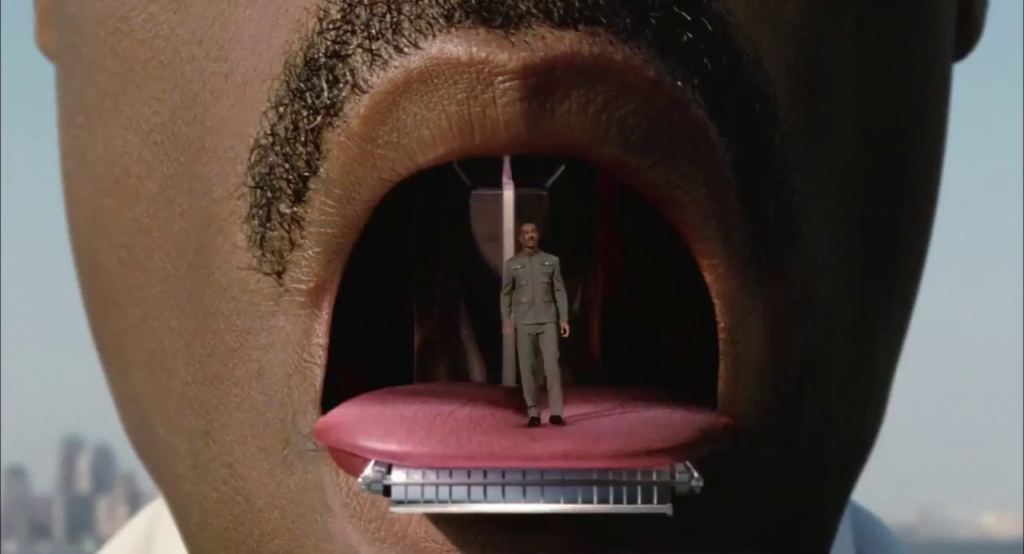
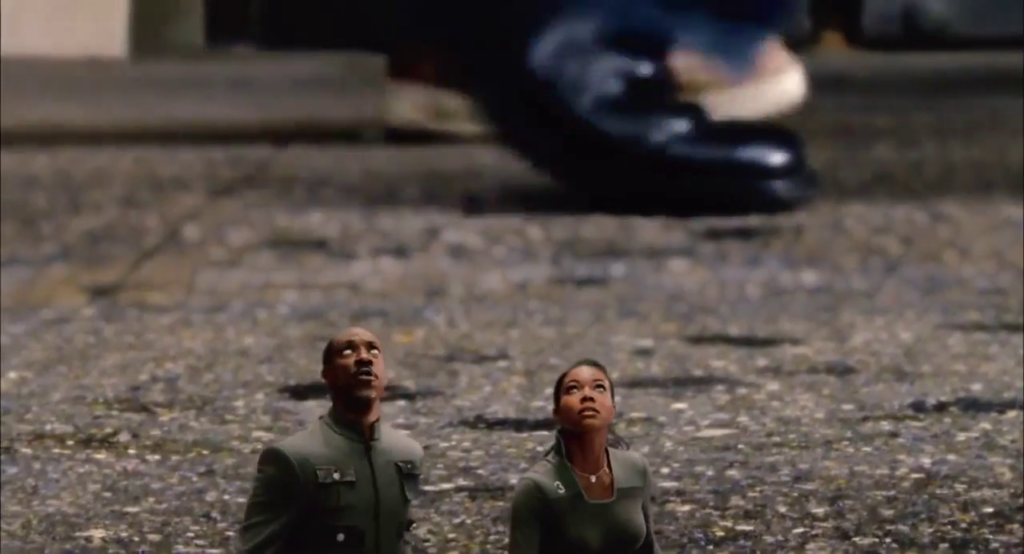
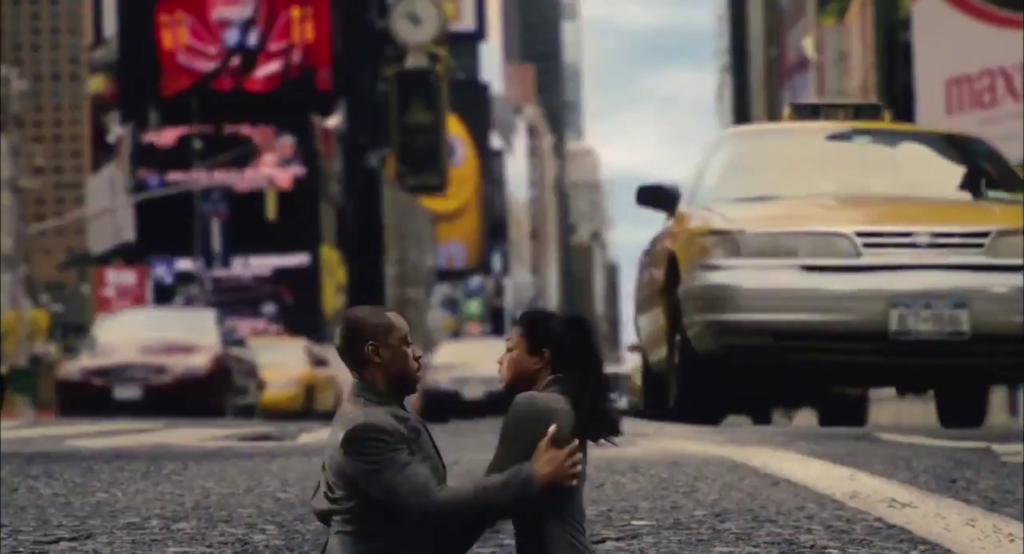
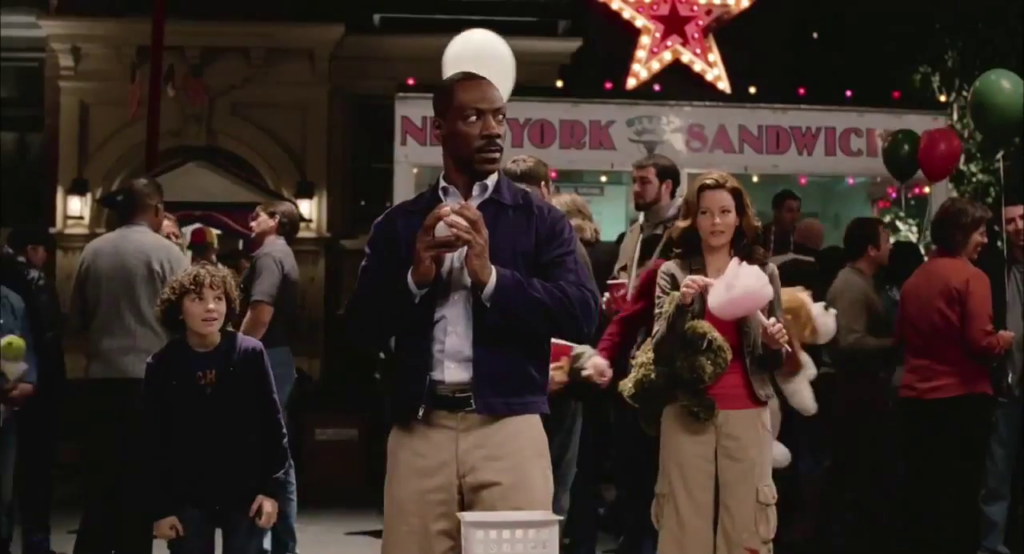
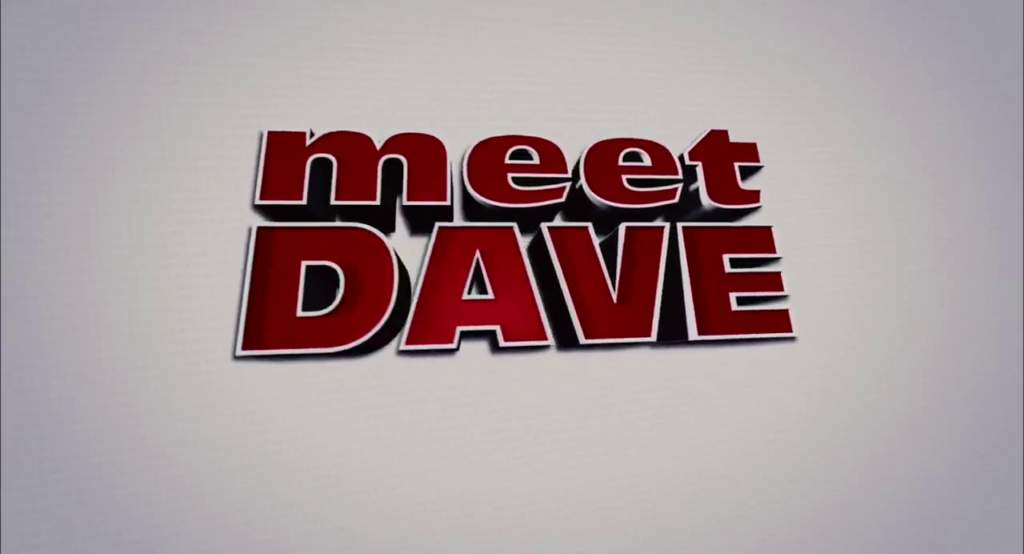
Meet Dave (2008)
Film review #598
Director: Brian Robbins
SYNOPSIS: An alien spacecraft in the shape of a human lands on Earth in search of a device that landed months earlier, that will drain the salt from the Earth’s oceans. Piloted by a crew of smaller humans (including the Captain who is the spitting image of their ship), they attempt to blend in with the crowds of New York City. Befriending a single Mother named Gina, the aliens learn about Earth and grow to admire it’s population. But as this threatens their mission to save their own planet at the expense of earth, not everyone is happy with this…
THOUGHTS/ANALYSIS: Meet Dave is a 2008 sci-fi comedy film starring Eddie Murphy. The film begins with a meteor falling to Earth and being found by a young boy. A few months later, a spaceship in the shape of a humanoid falls to Earth to look for the meteor, which is in fact a device to drain the Earth’s oceans of it’s salt. The ship is piloted by a crew of tiny humanoid aliens, including the Captain, whose image the ship is apparently based on, and the ship, attempting to blend in as a human, heads around New York City to find the meteor so that the aliens may save their own planet. Meeting Gina, a single Mother who accidentally hits “Dave” (as the crew refer to themselves), with her car, the two strike up a friendship and as the Captain learns more about the Earth, the less he is willing to sacrifice it to save his won world. The story is a very predictable affair, jumping from set piece to set piece that are each familiar and well worn in similar movies. Everything also feels very cartoon-ish, and unable to develop any depth. Gina’s friendship with Dave never expresses something more profound; in part due to her scatter-brained character, in part because I think the film maybe wanted a romantic element to it, but it never goes in that direction either. This is compounded by another issue I will mention later. There also just doesn’t seem to be any direction to the plot at all: sure, the aim is to recover this meteor, but it never feels like that is the primary concern. Even when it is recovered, the film just carries on doing things which don’t further the story or deepen the character’s relationships.
A lot of the film’s issues undoubtedly stem from the film being passed around a lot of different writers before it was finalised. Apparently, the film originally was going to be a bit more adult-oriented, but nowhere is this evident in the final version, which seems to just had every element neutered by the chain of writers that seem to have imagined the film for different audiences. Again, this leads to the film avoiding any sense of depth at any point, as the script tries to meet itself half-way at every possible point. The film is unable to create a significant connection between Dave and Gina, it resolves Josh’s “bully” problem in one quick scene, and the ending that romantically links Gina and her neighbour is something that more or less comes out of nowhere: there’s one brief scene prior to the ending that hints at a romantic connection, but it in no way builds itself up to be one of the take-aways of the film. We also know next to nothing about these aliens home world, culture or anything of the sort, which makes it difficult to understand just what they are getting from their experiences on Earth.
I suppose if you want a positive from this film, Eddie Murphy works well in the lead, given a fair amount of space to be his animated self. It’s just a shame the script doesn’t offer him much more. Gina (portrayed by Elizabeth Banks) is again animated and energetic, but her spritely aloofness renders her character a caricature unable of fathoming any emotional depth. Number Two as the villain is bland, ands again, because we nothing about these character’s backgrounds, it makes it difficult for them to stand out. Kevin Hart’s role as a kind of cutaway slapstick character is pointless: mostly because one; Eddie Murphy’s character has that role, and overshadows anything Hart does. Two, he clearly has no creative room to do anything interesting other than just scream a bit. If this was a more adult-oriented film, then maybe he could cut some more significant and risqué, but as it stands, he barely has anything to do. Production values are also fairly sloppy with some atrocious greenscreen effects for the time.
Eddie Murphy has been quoted as saying his role in Meet Dave is among the worst he has been in. It’s hard to disagree with that, although I don’t think it’s really his fault: the script has no direction, depth, or any idea who it’s aimed at, thanks to being shredded and blended by a mix of writer’s that results in a middle-of-the-road venture that doesn’t even try to stretch itself beyond that centre. It’s no offensively awful in any way, it’s just bad in the sense it’s unoriginal and uninspired, opting for safe, well-tested jokes and scenarios, ultimately wasting the talent it has on board.



